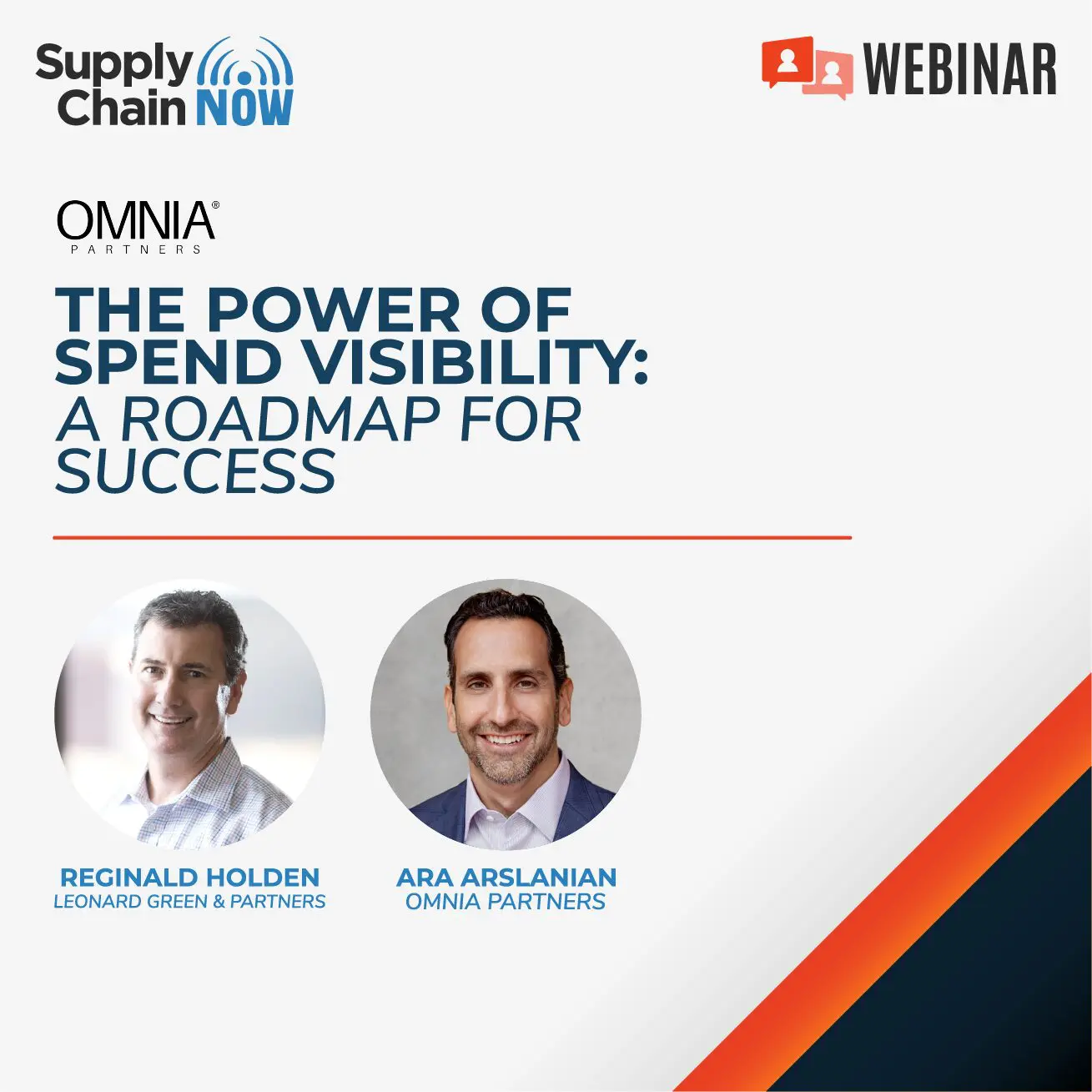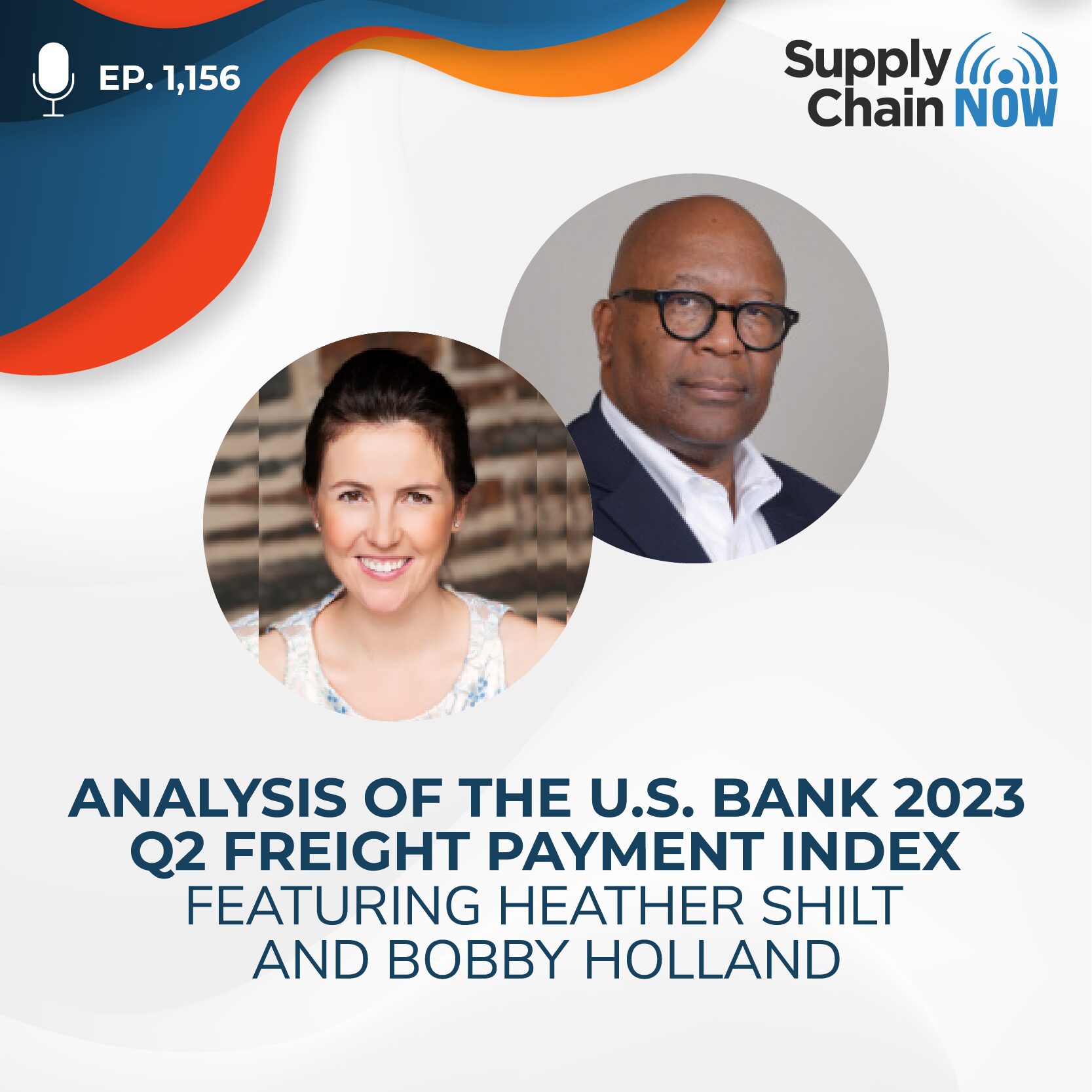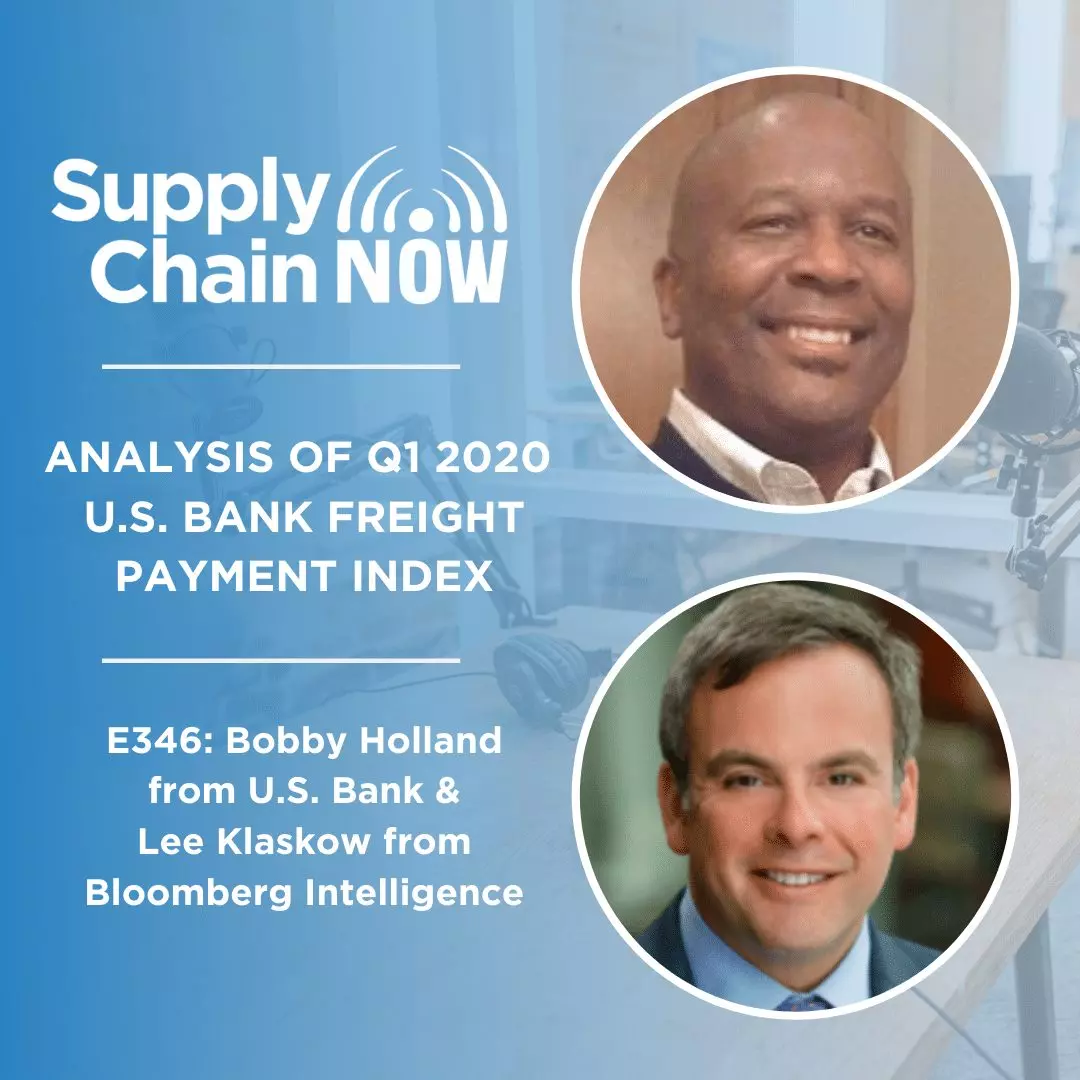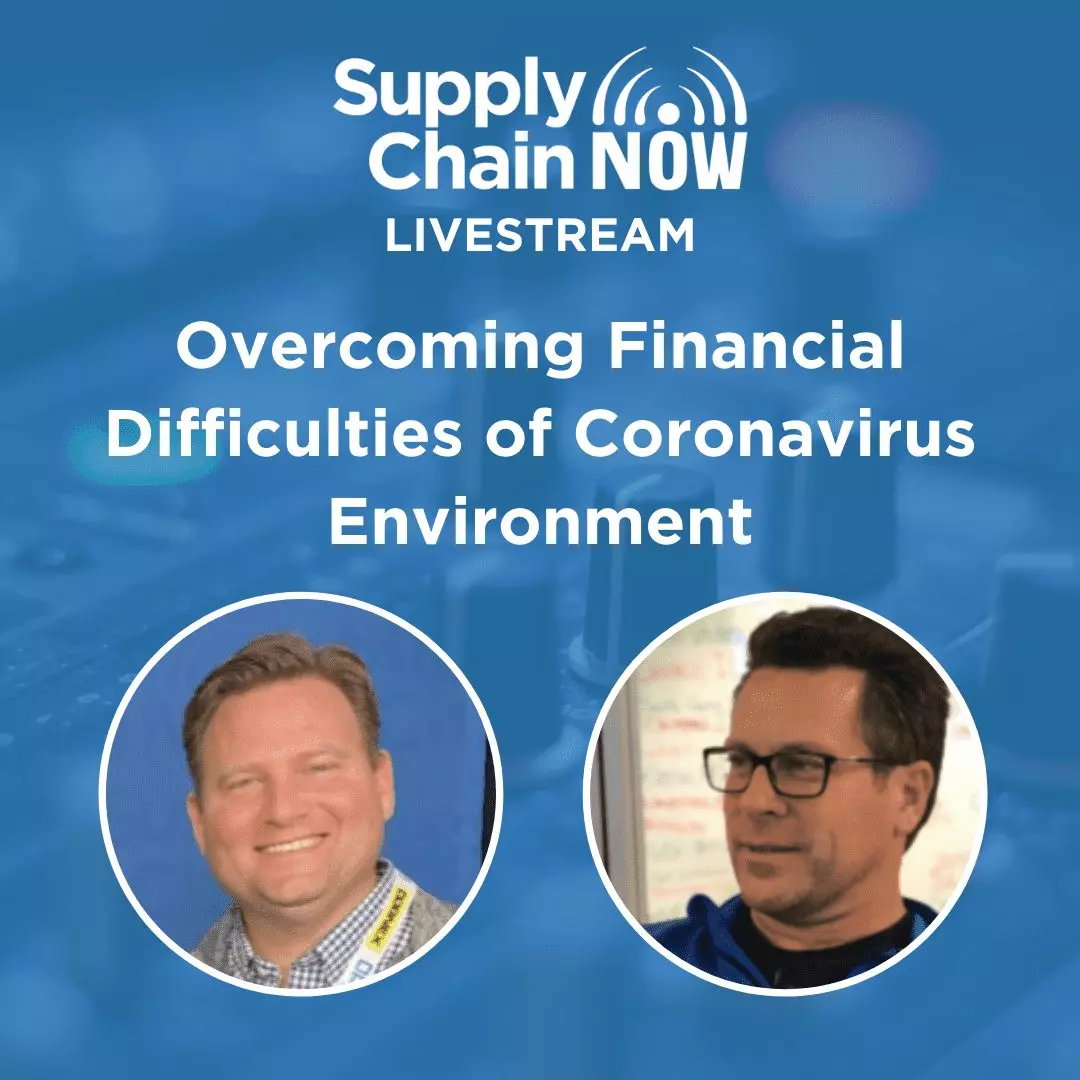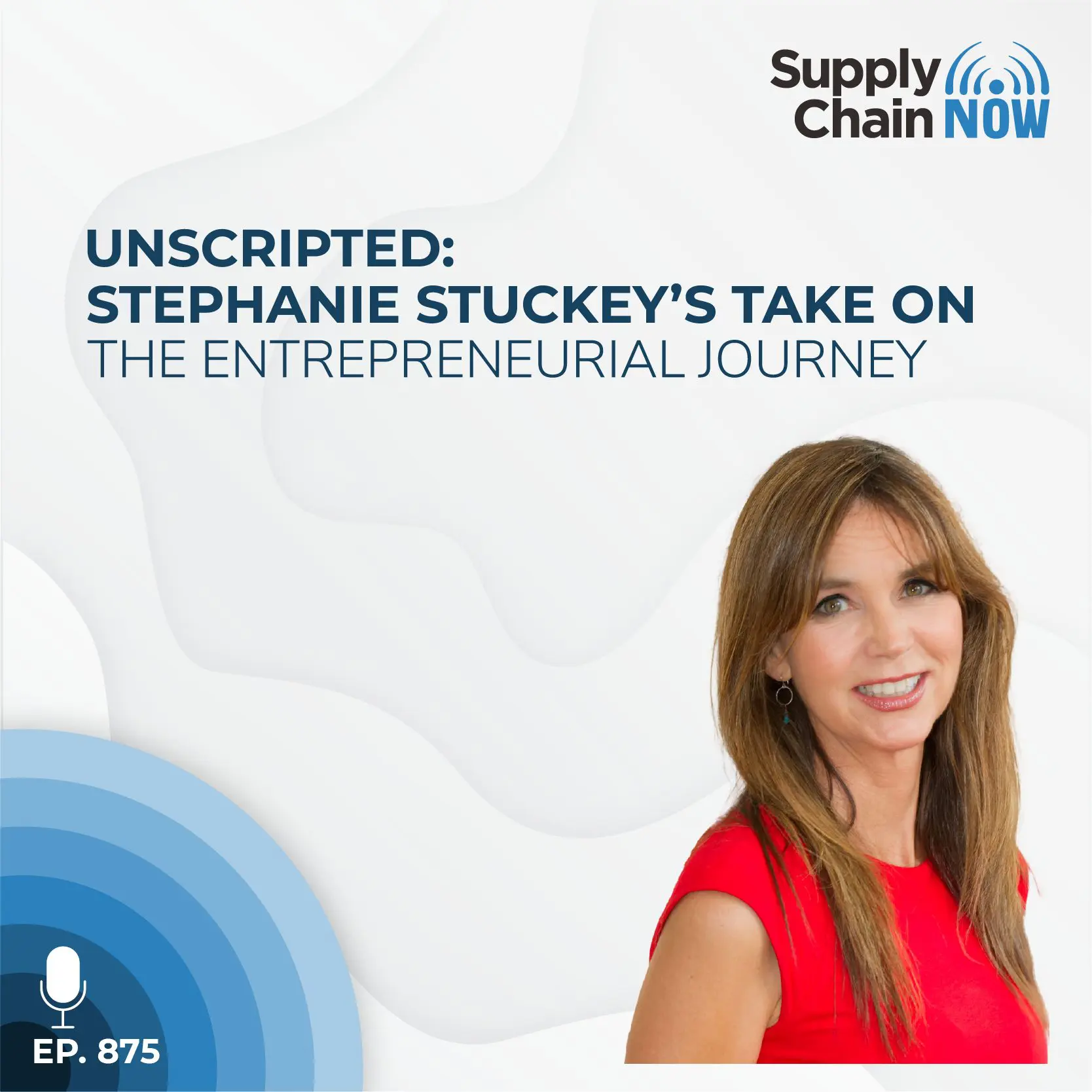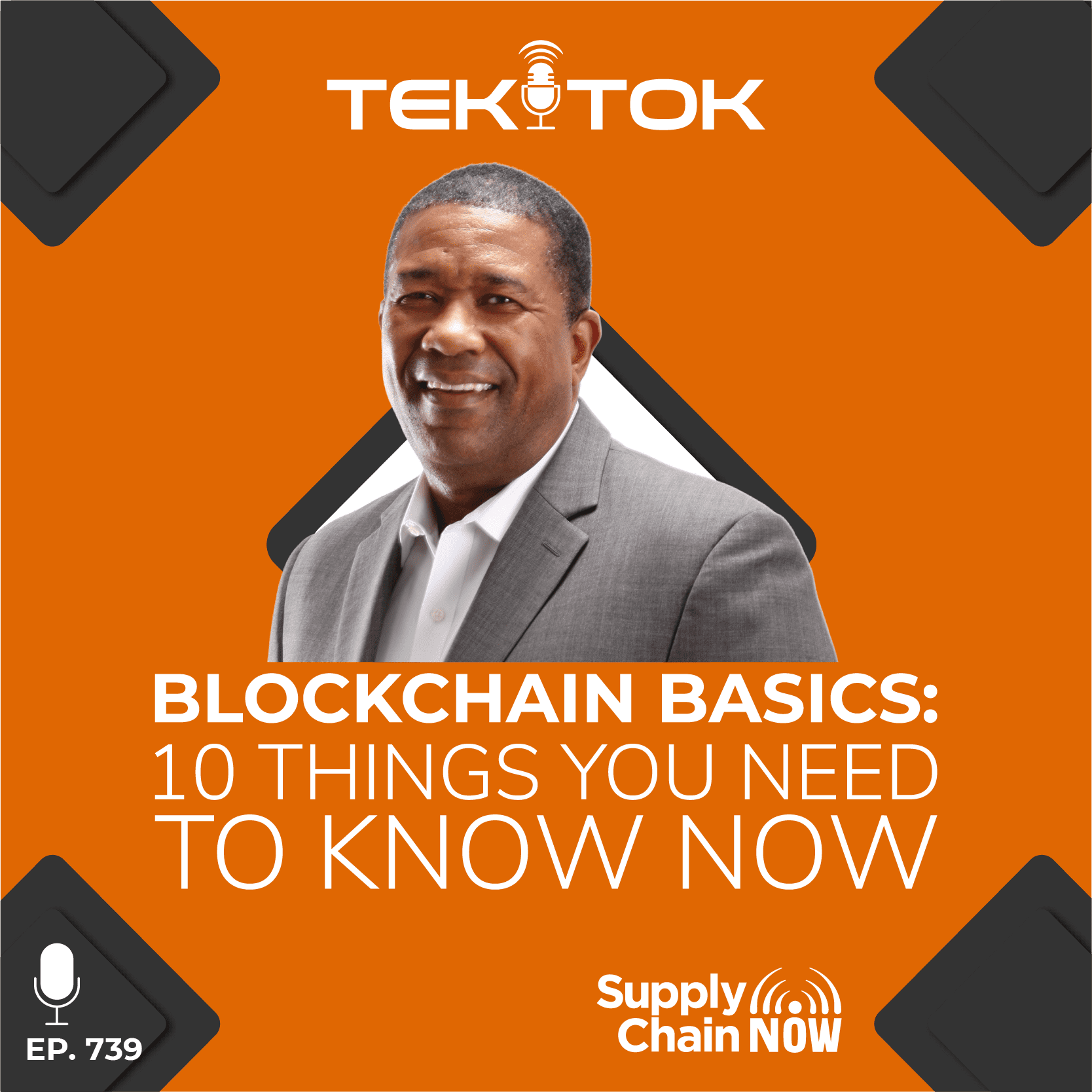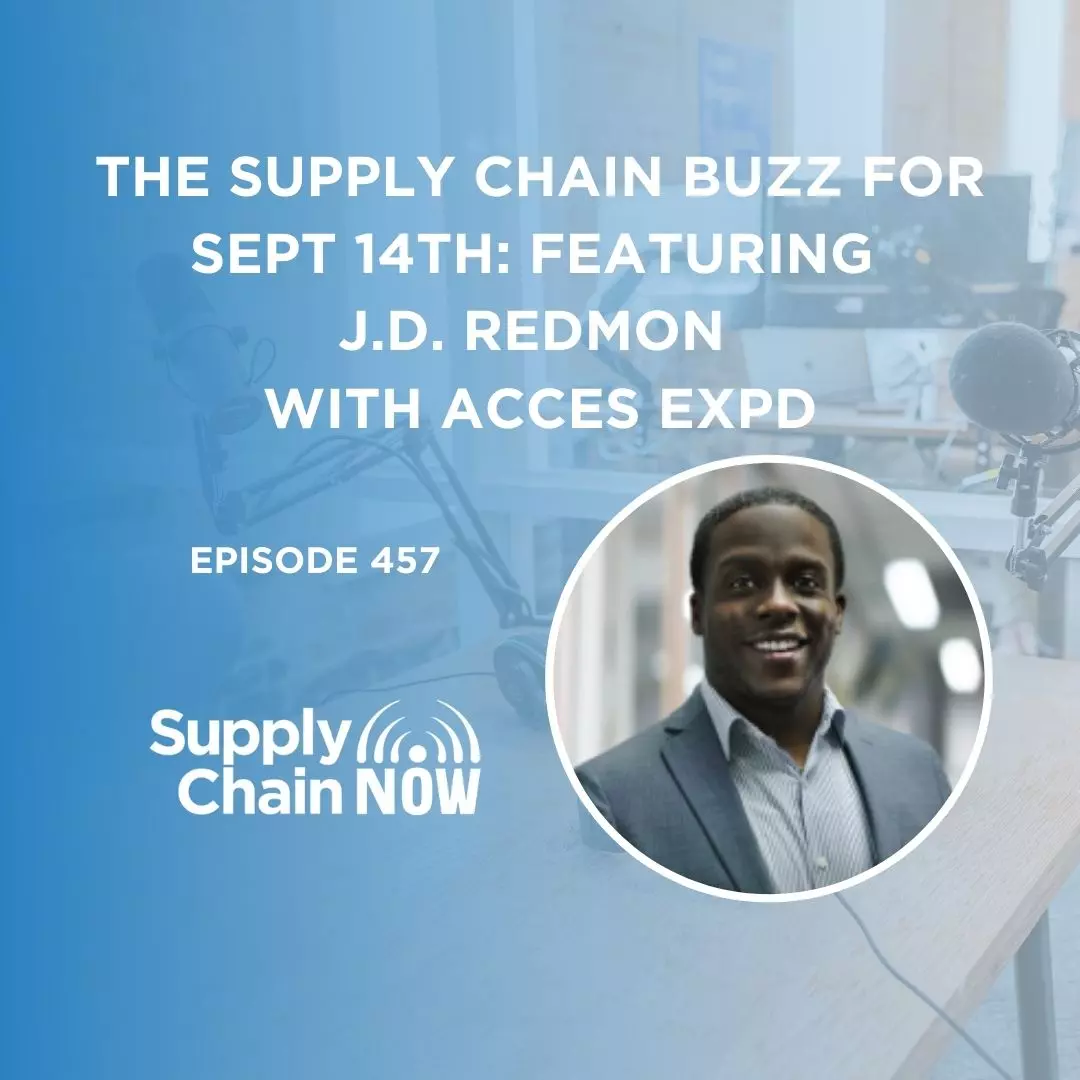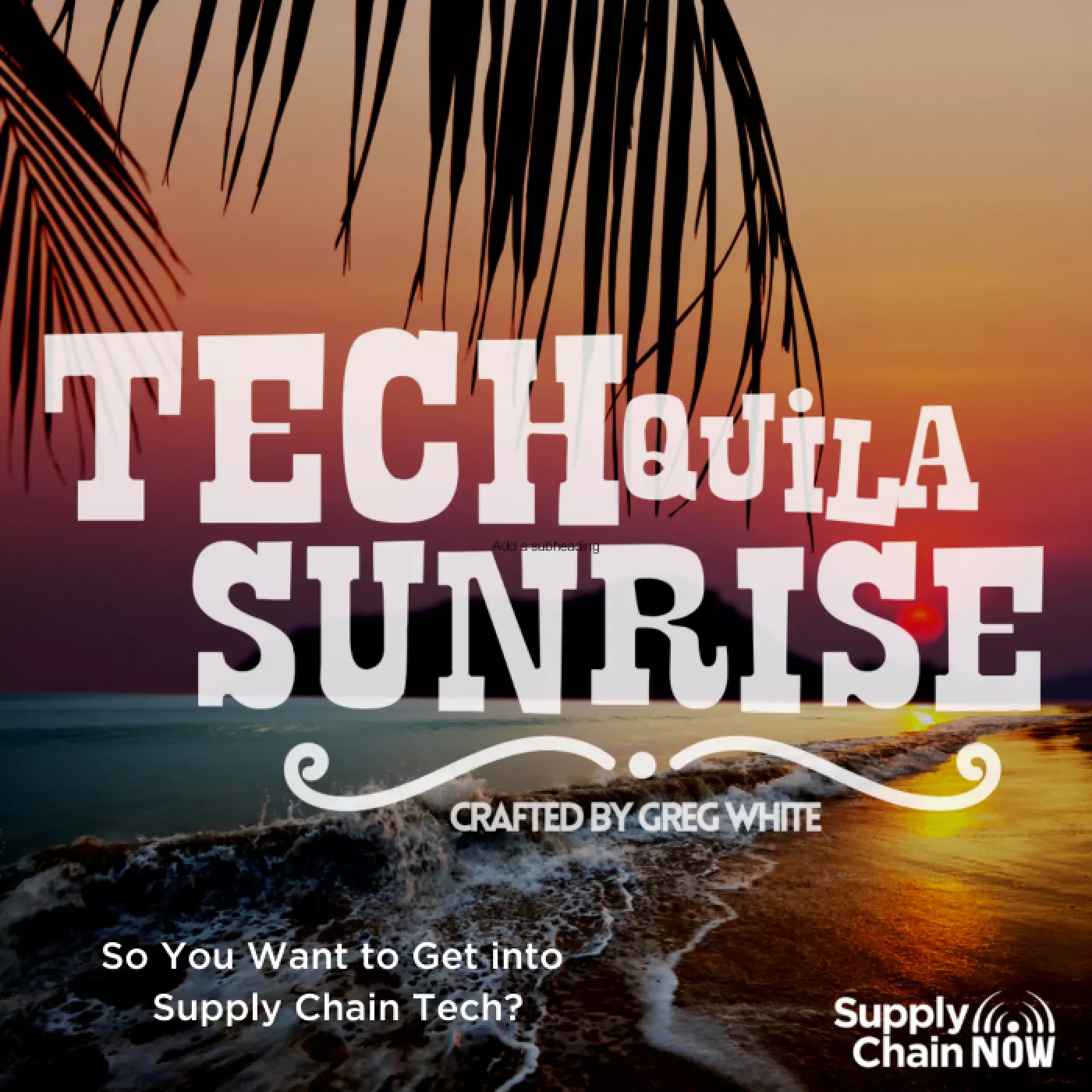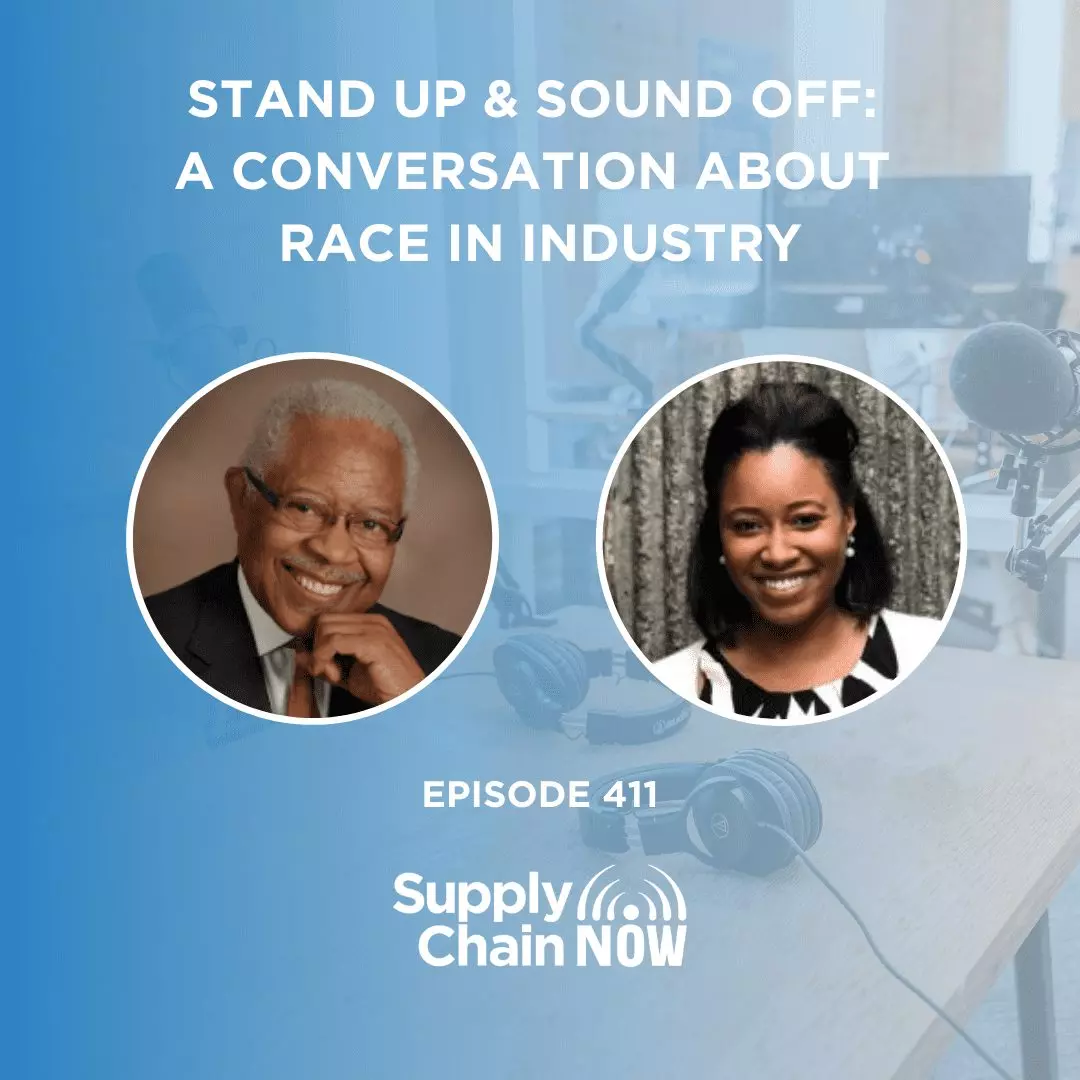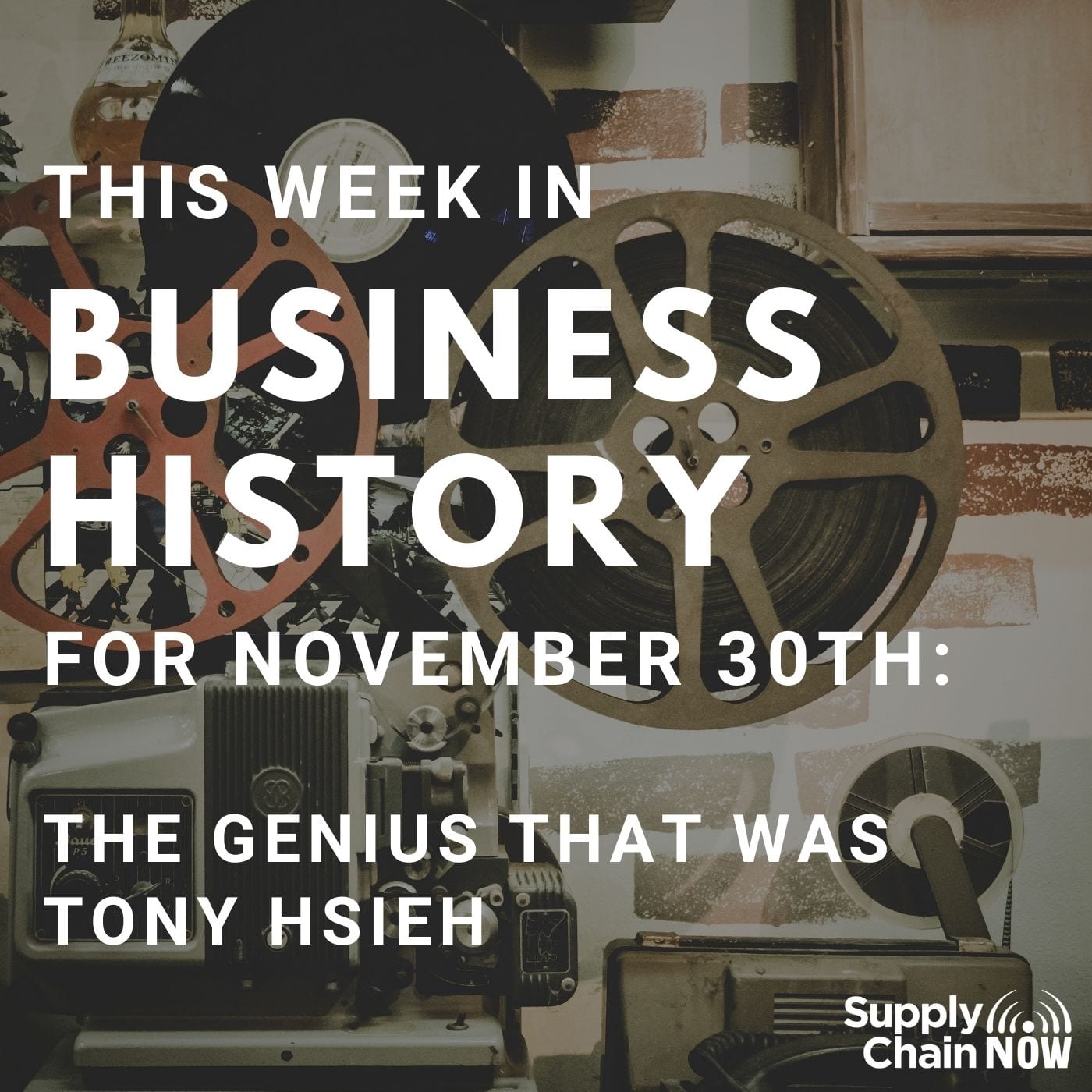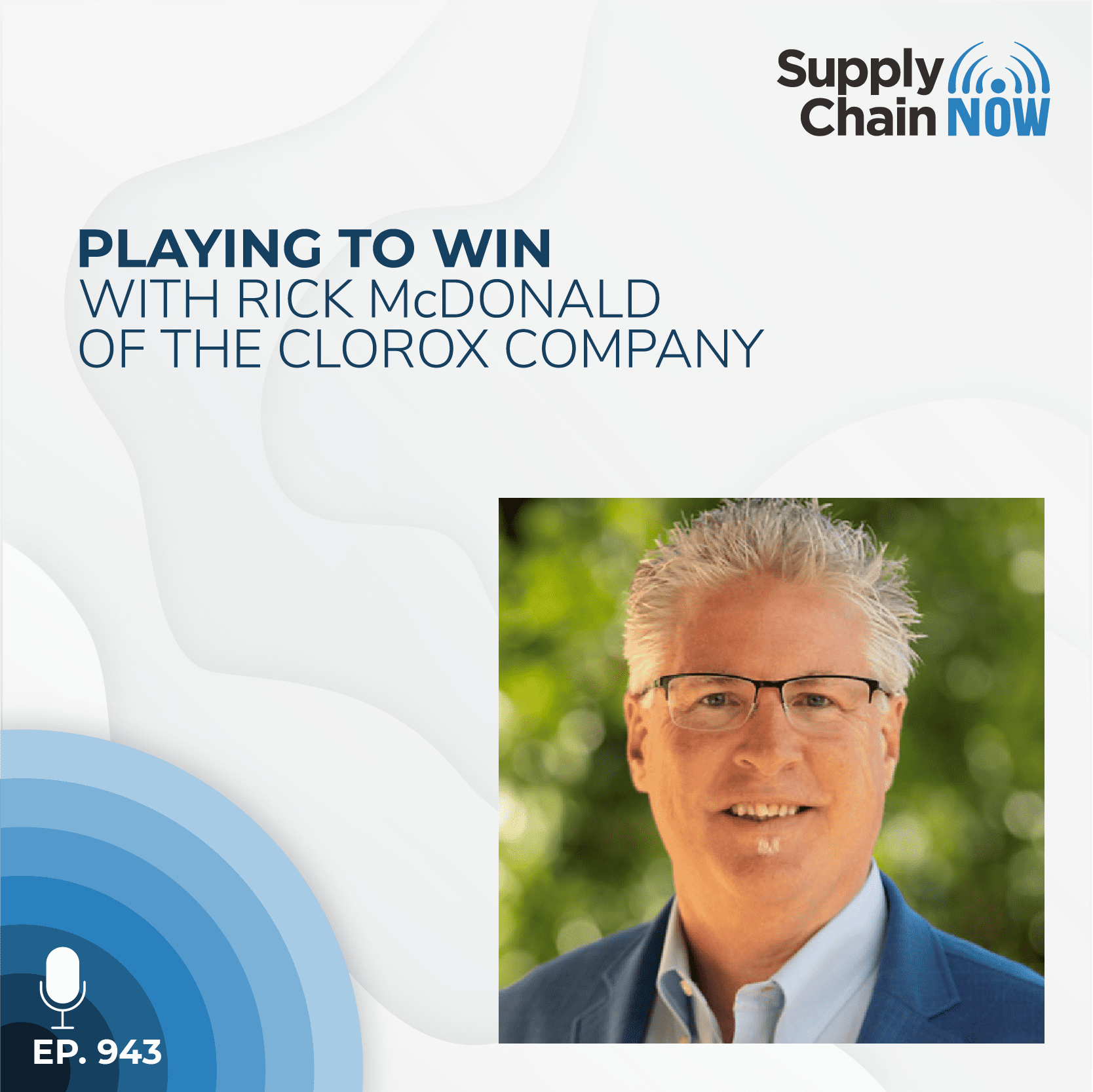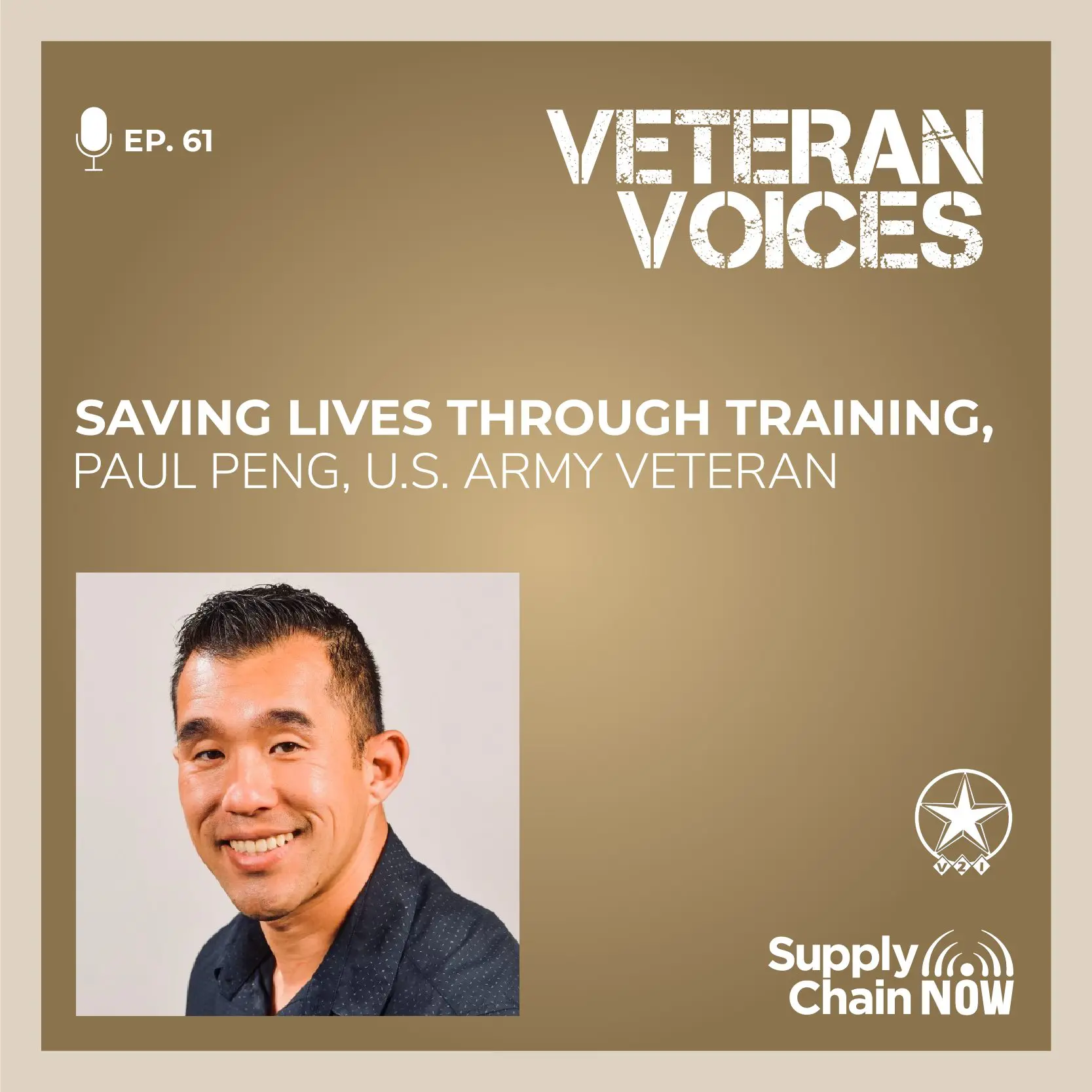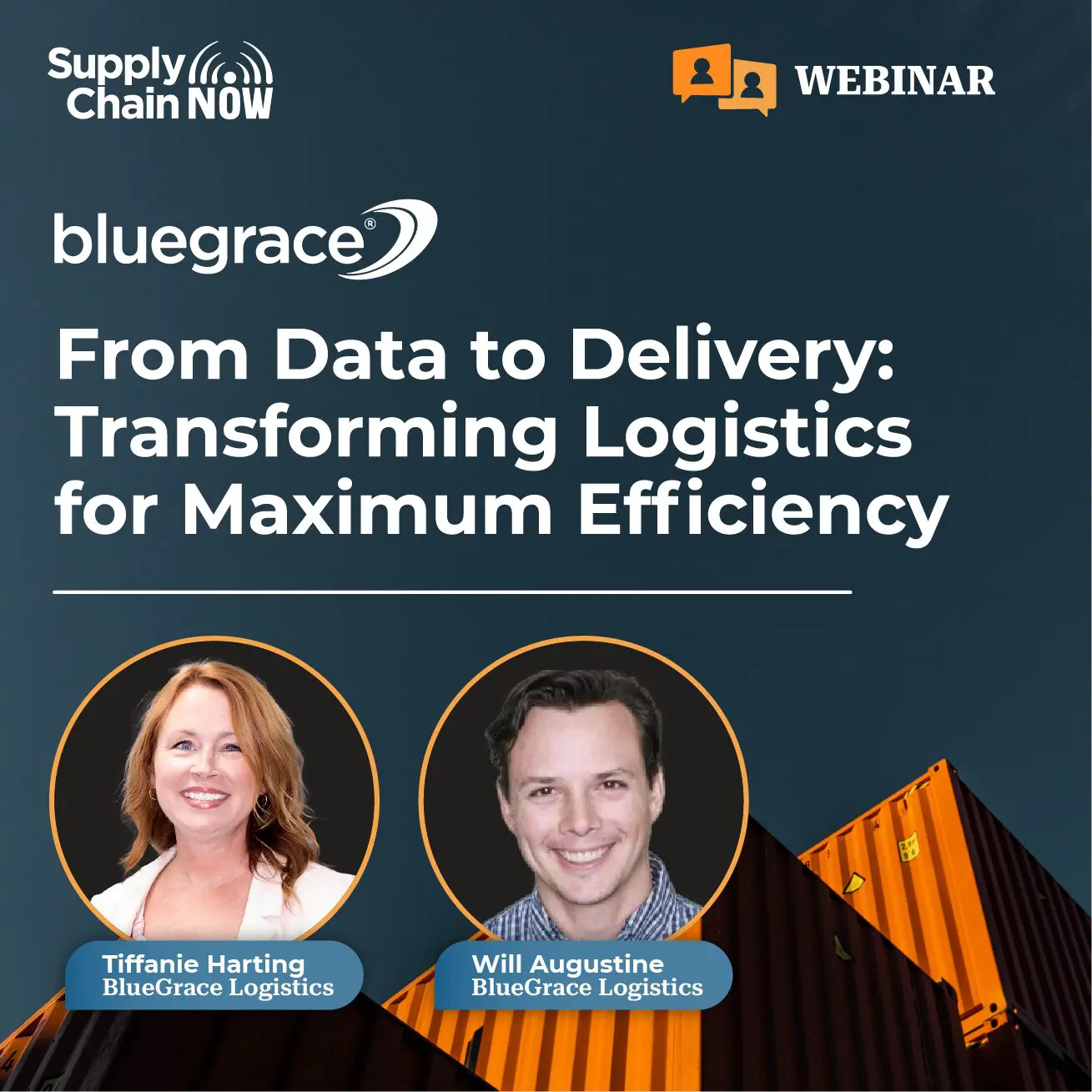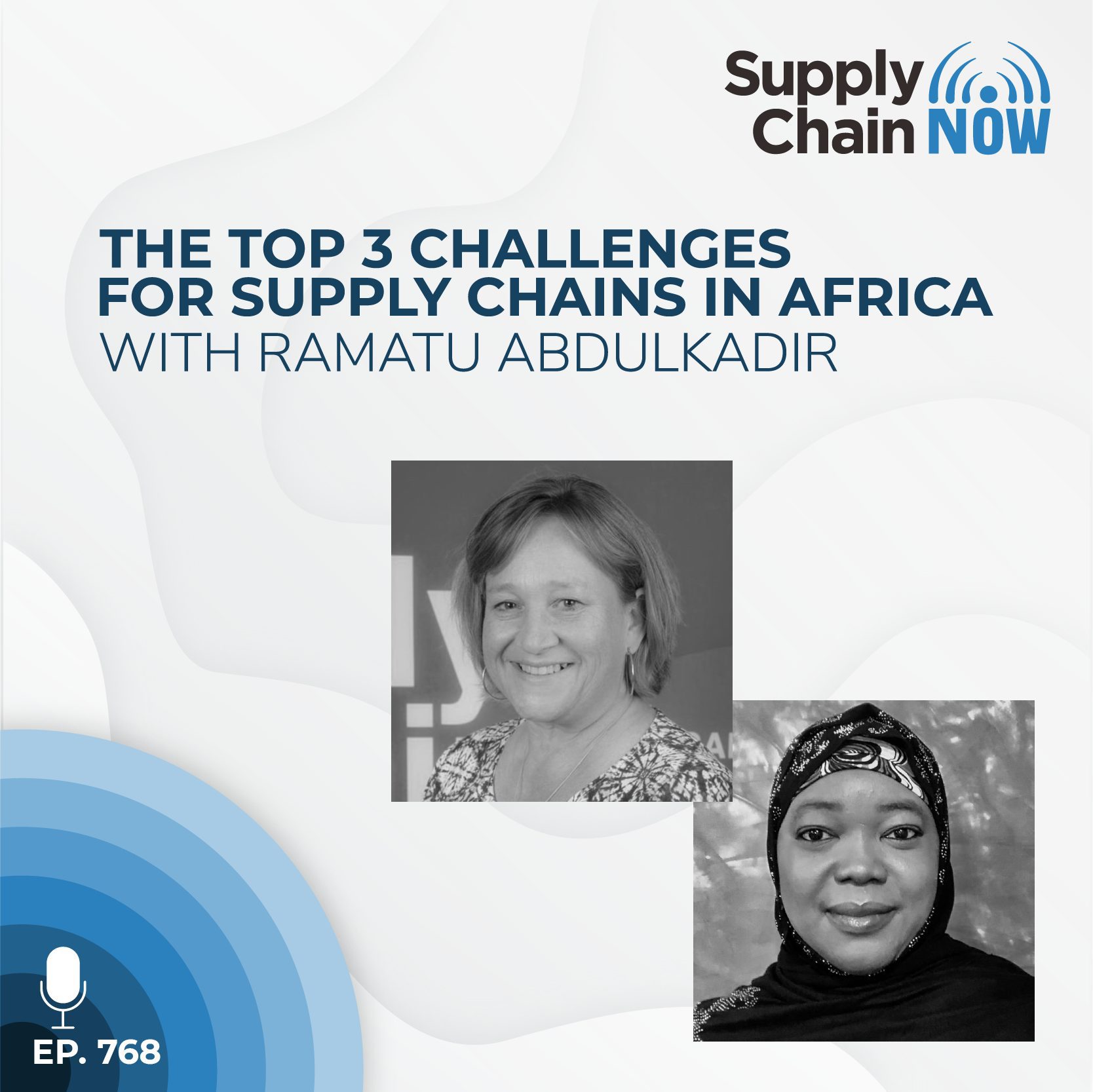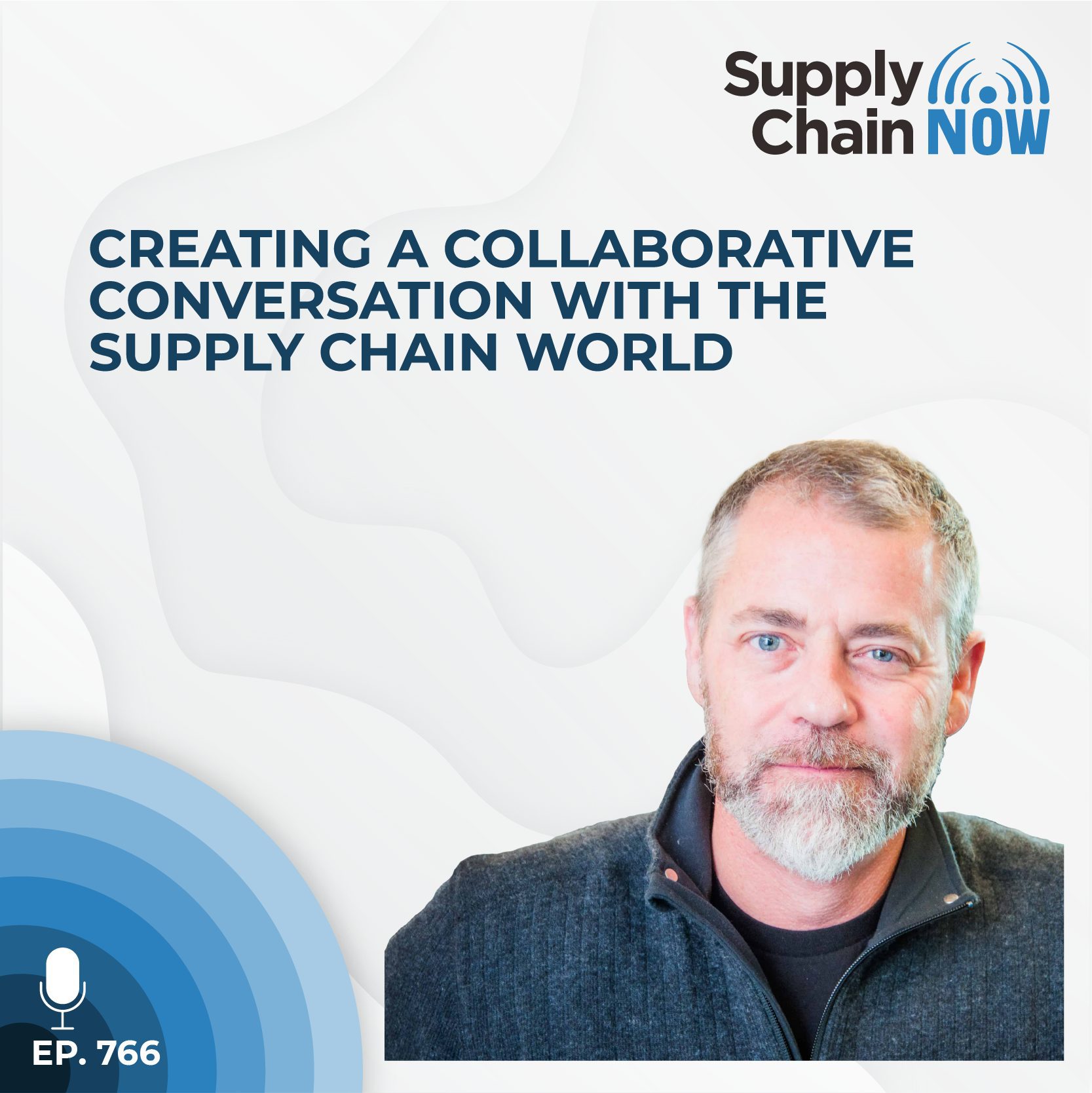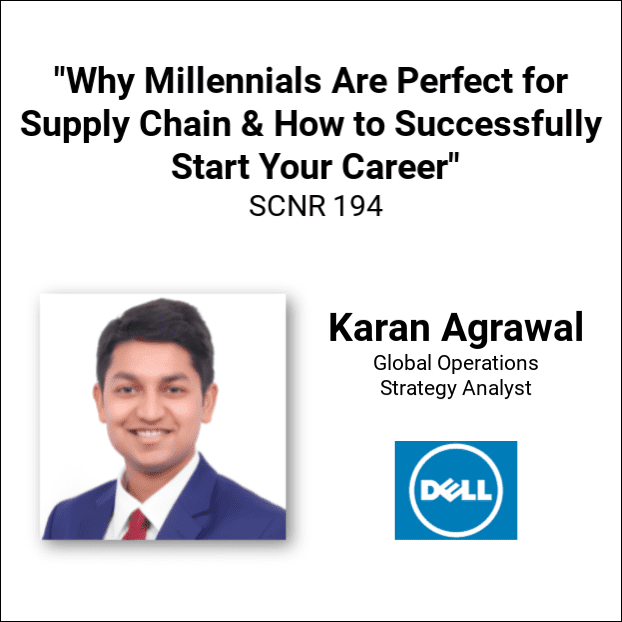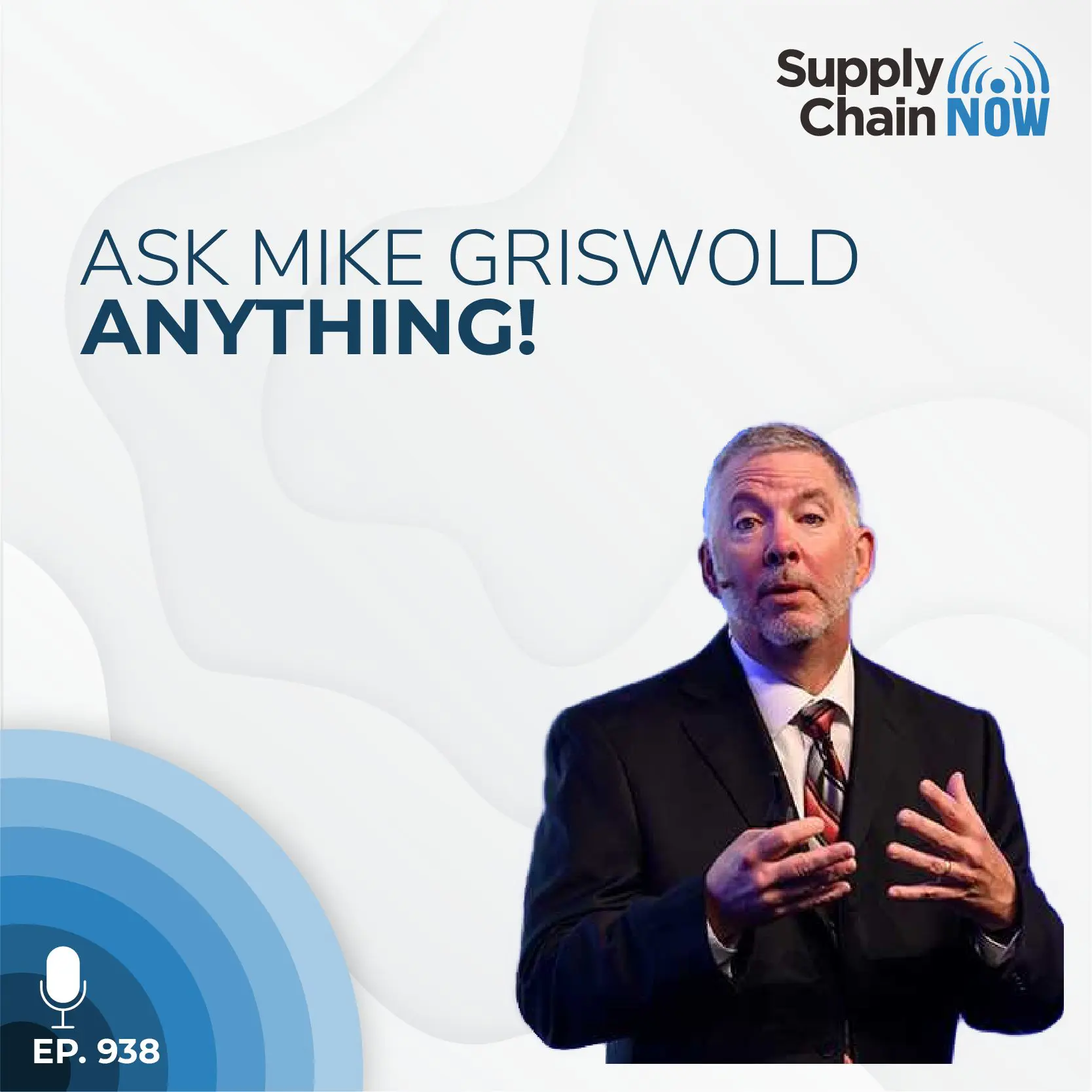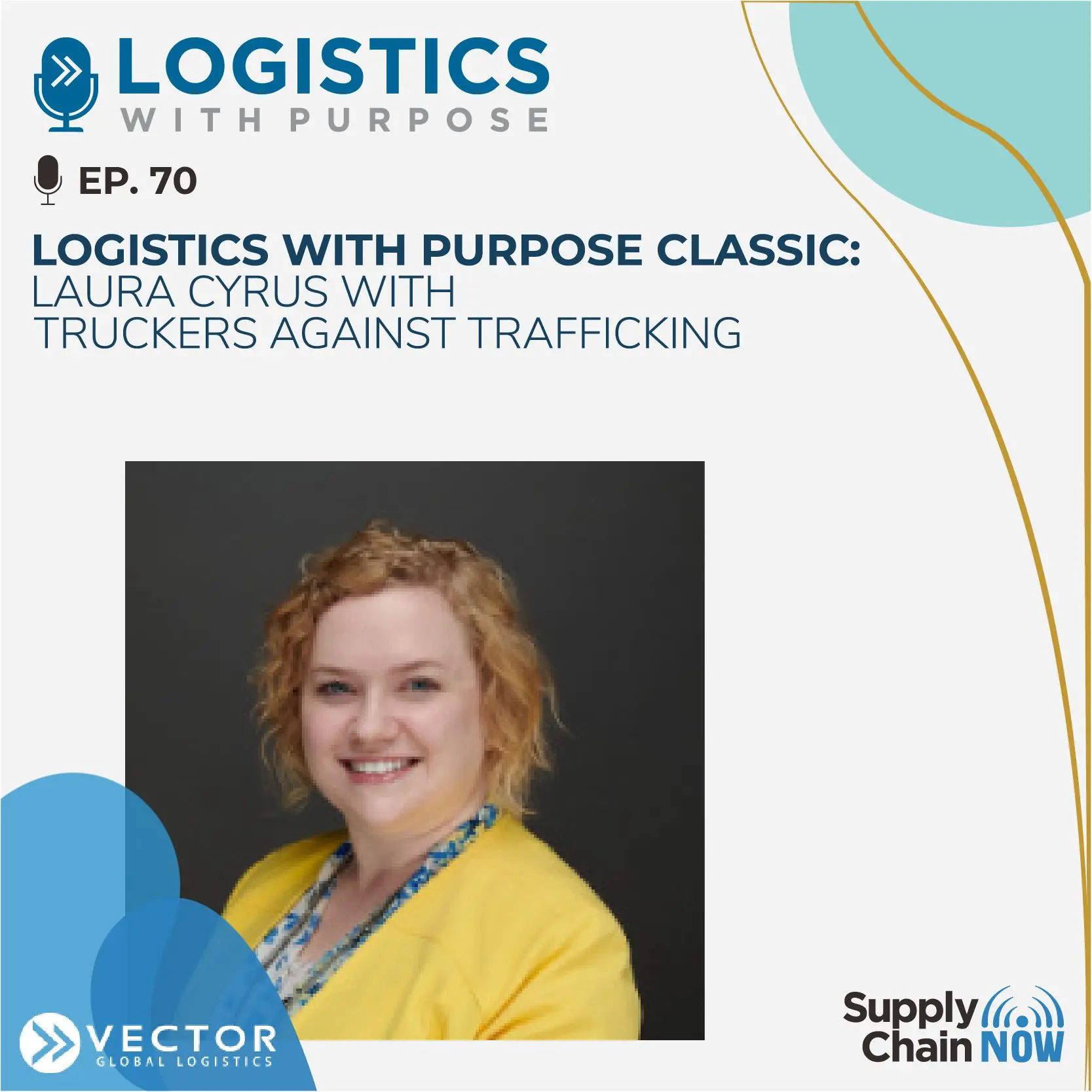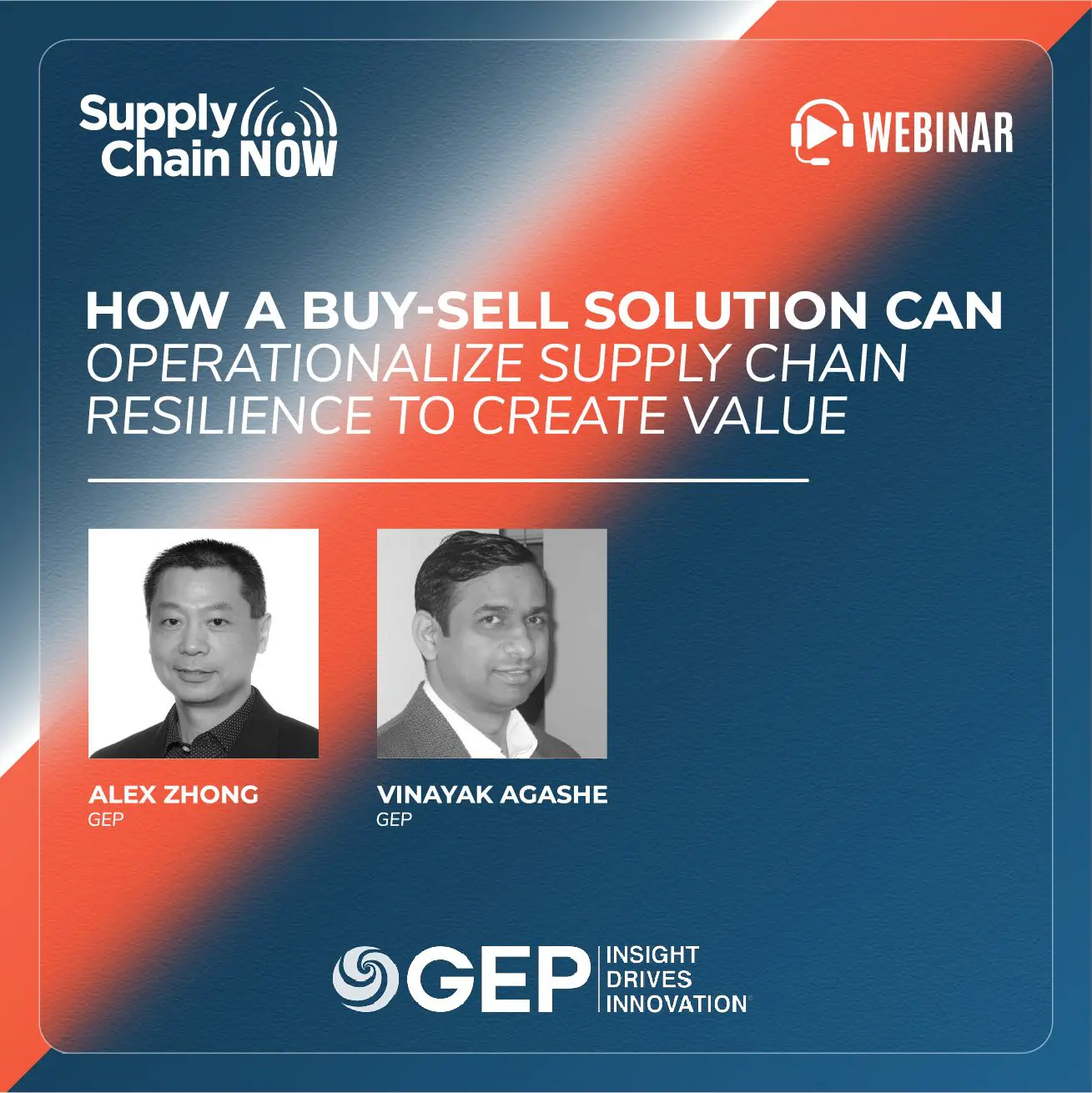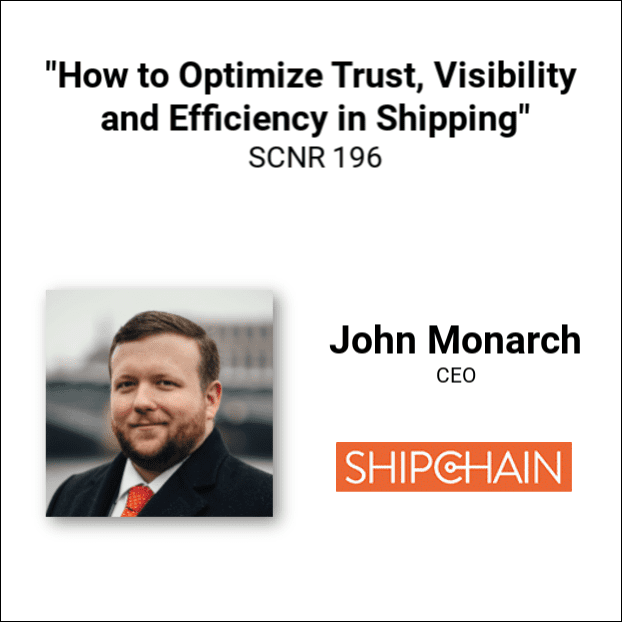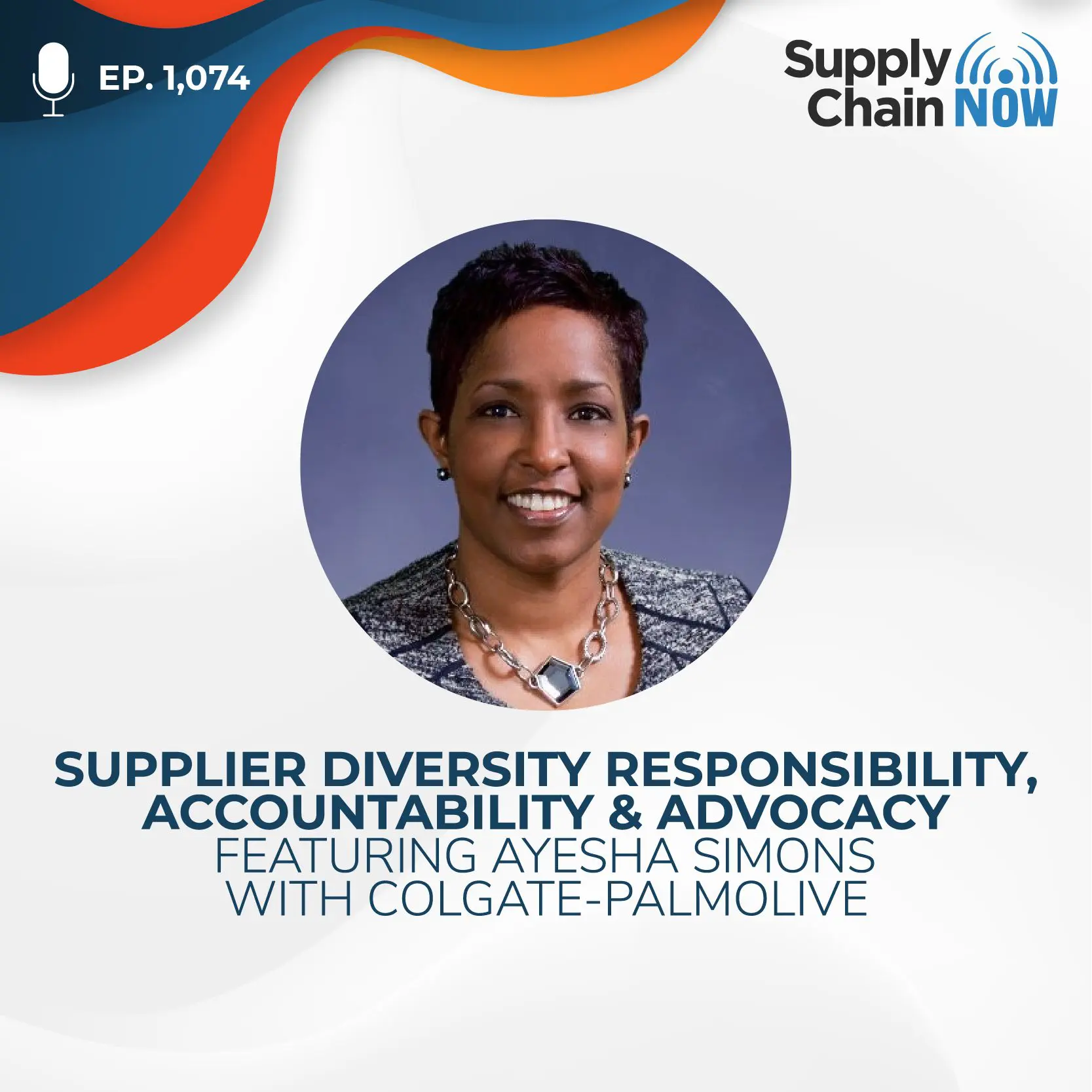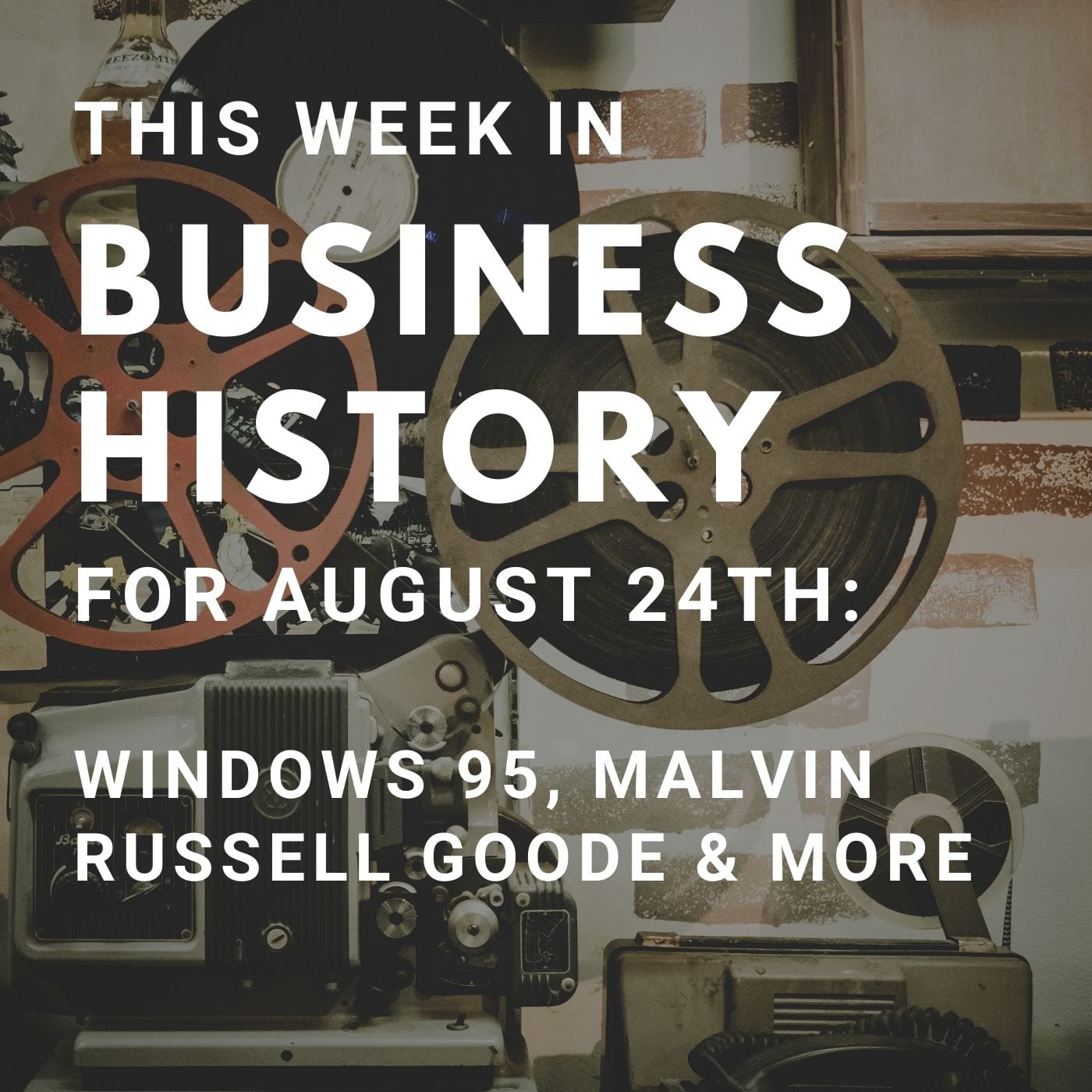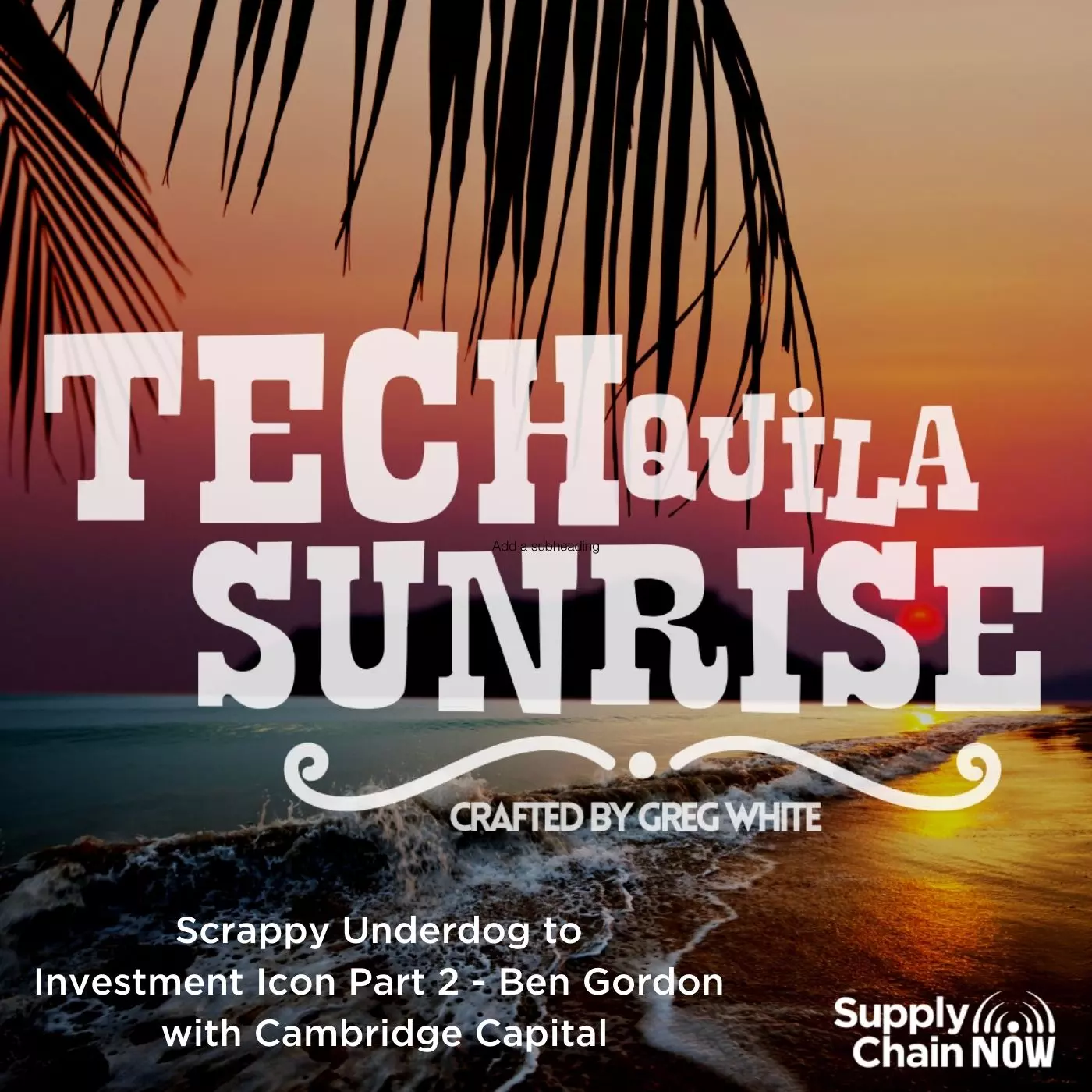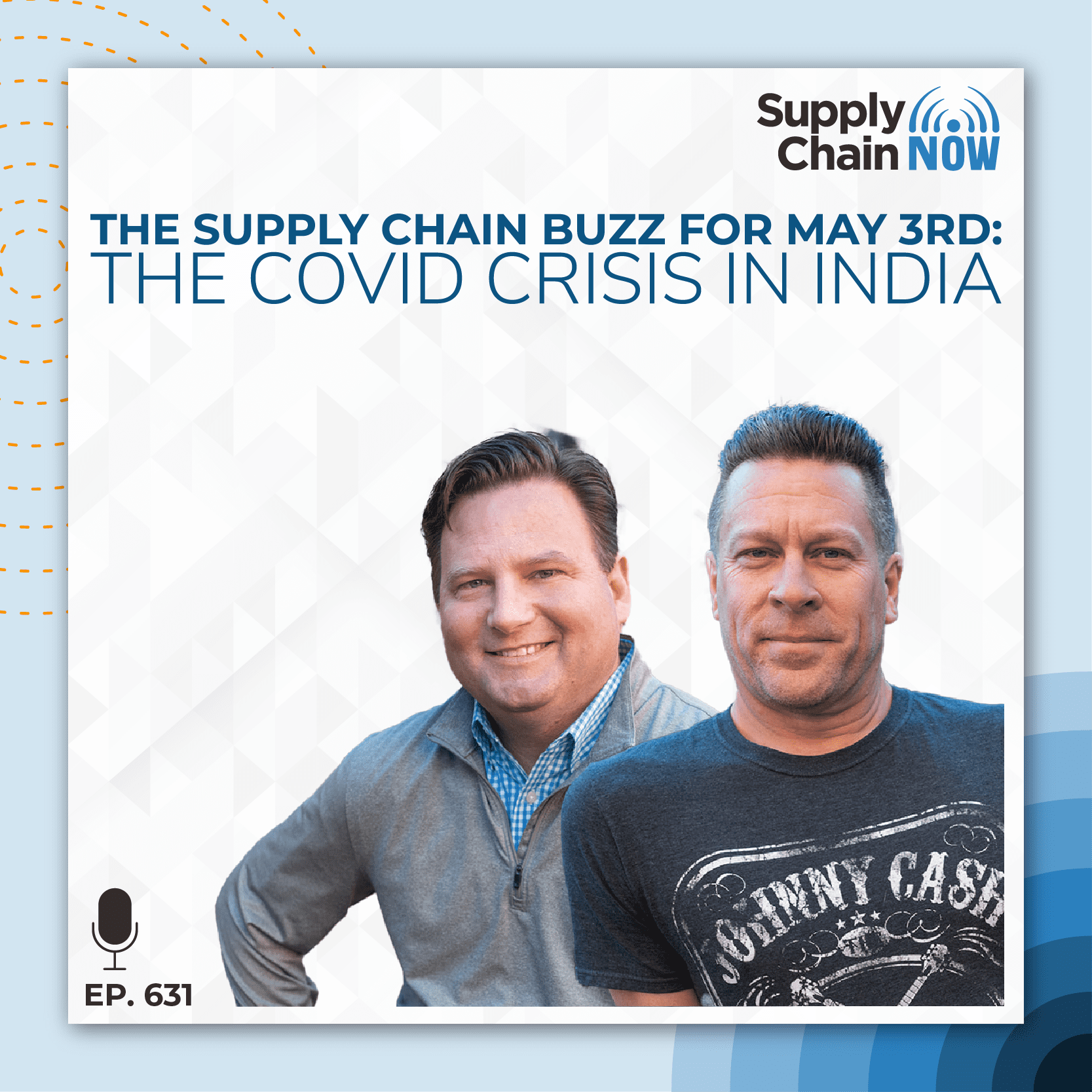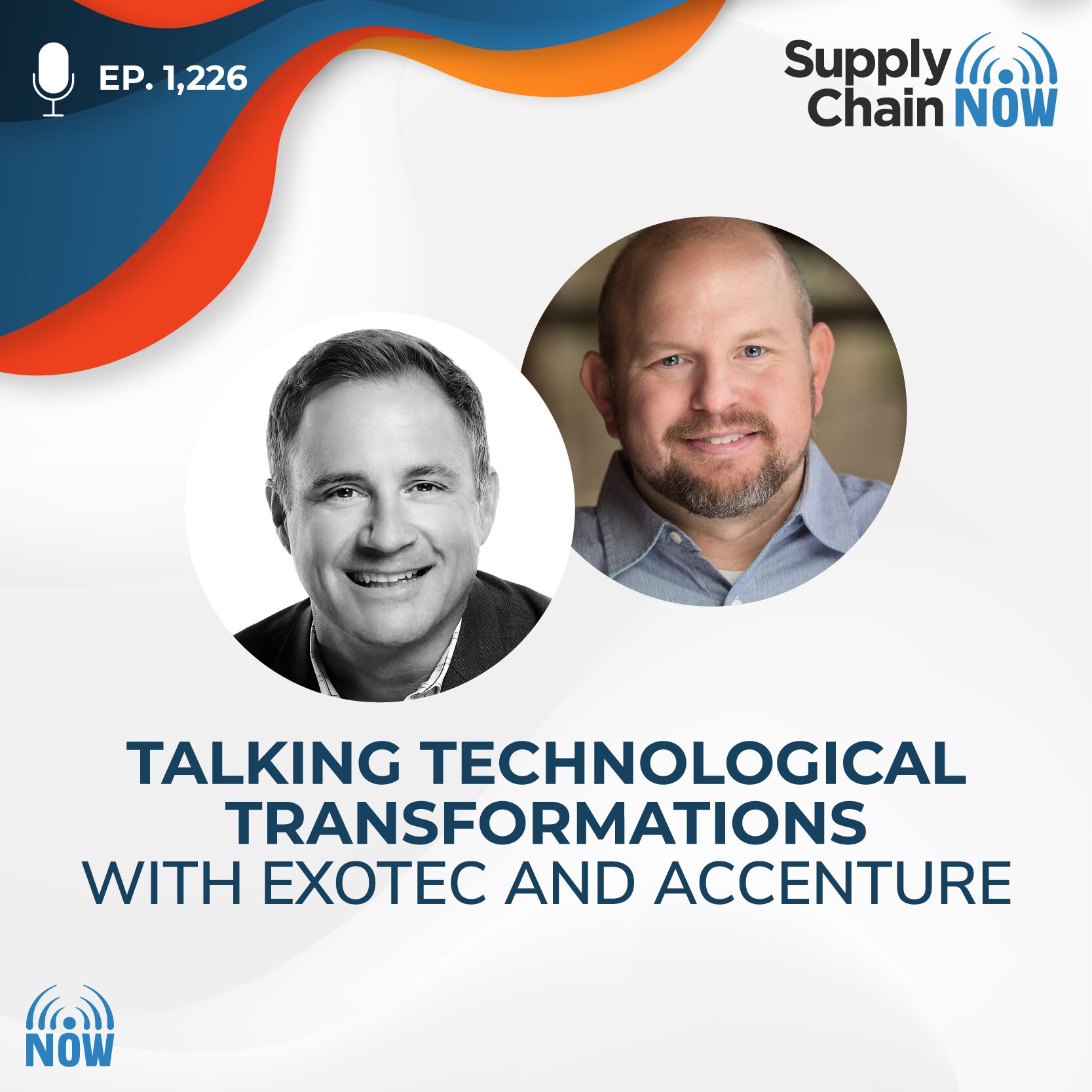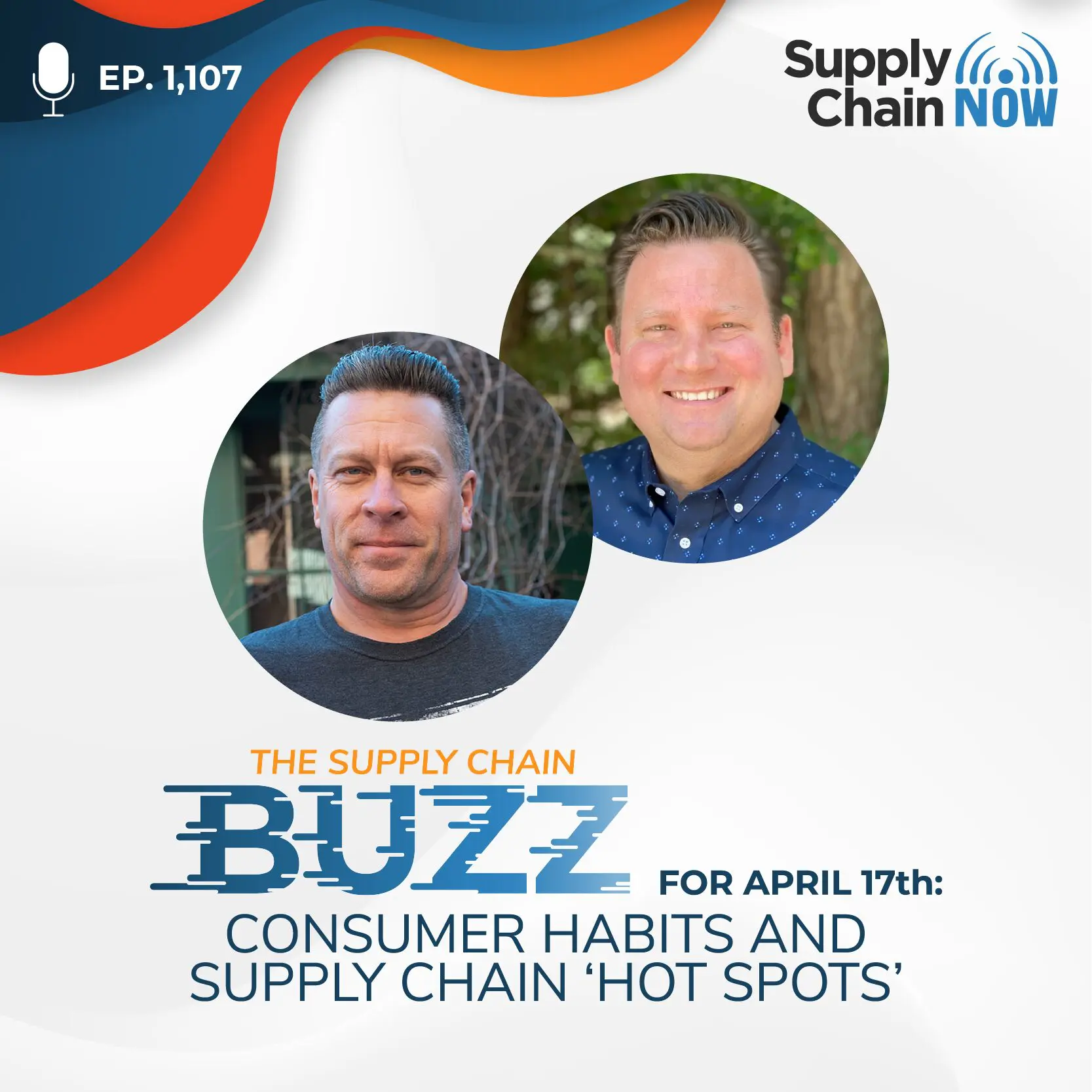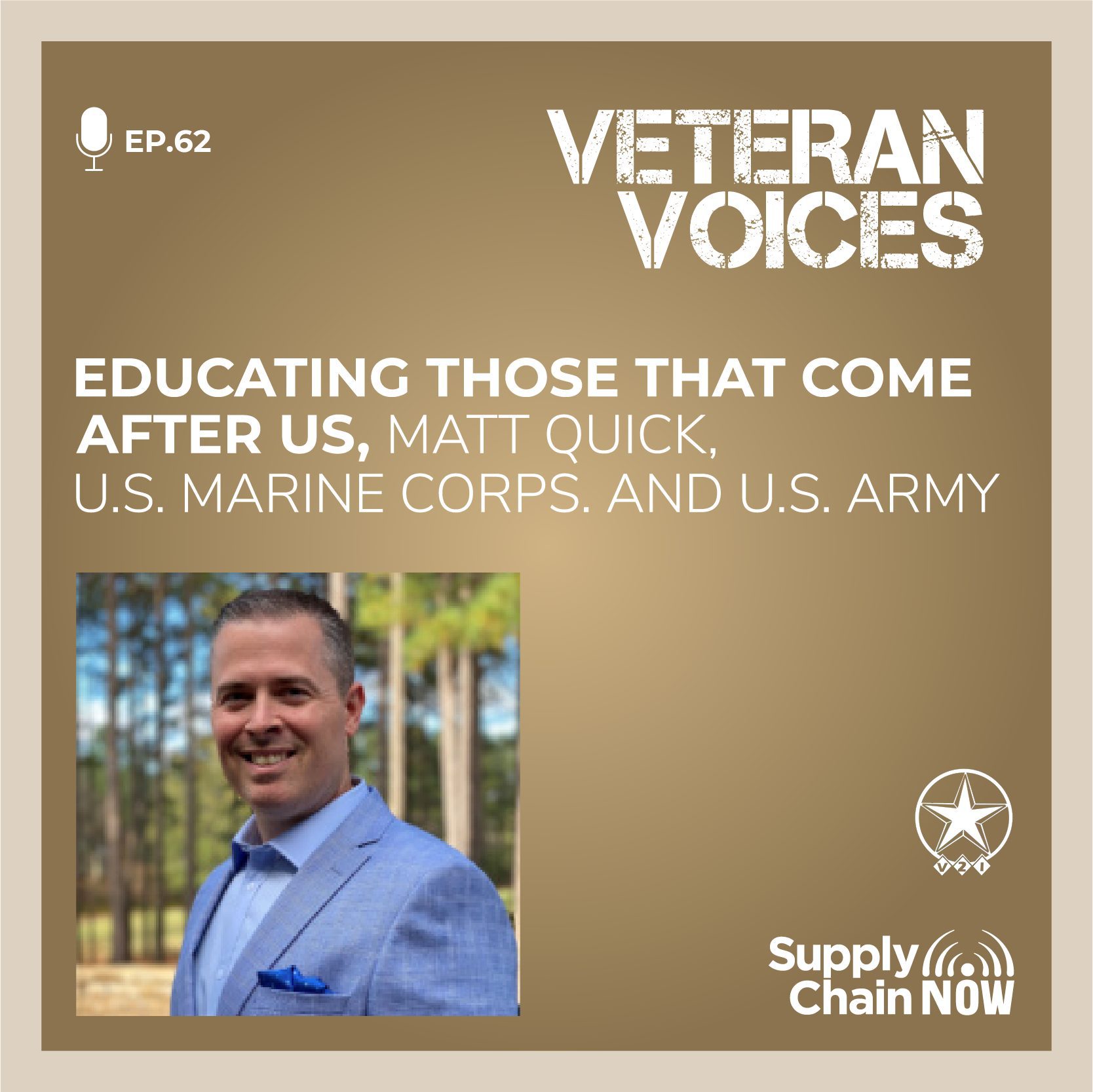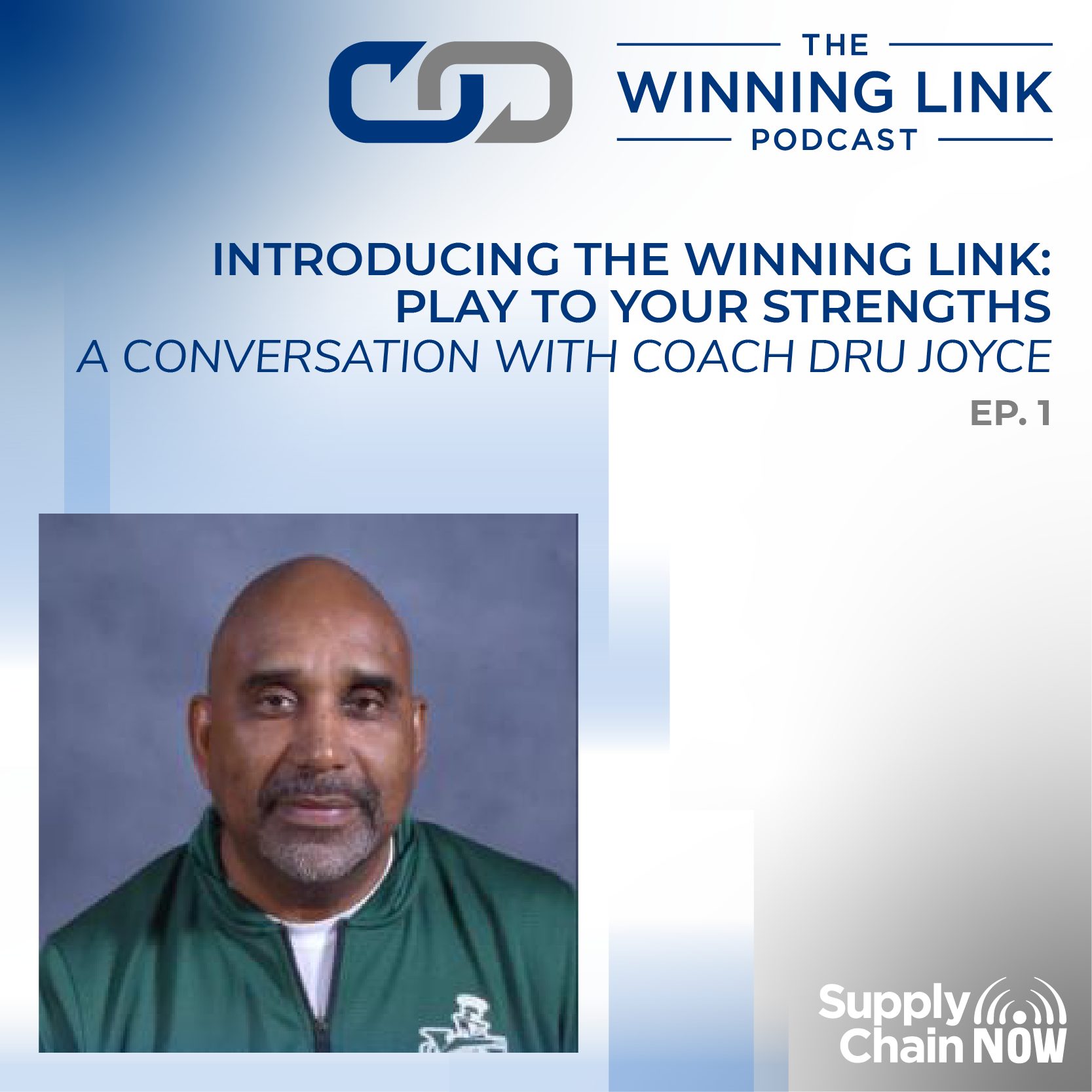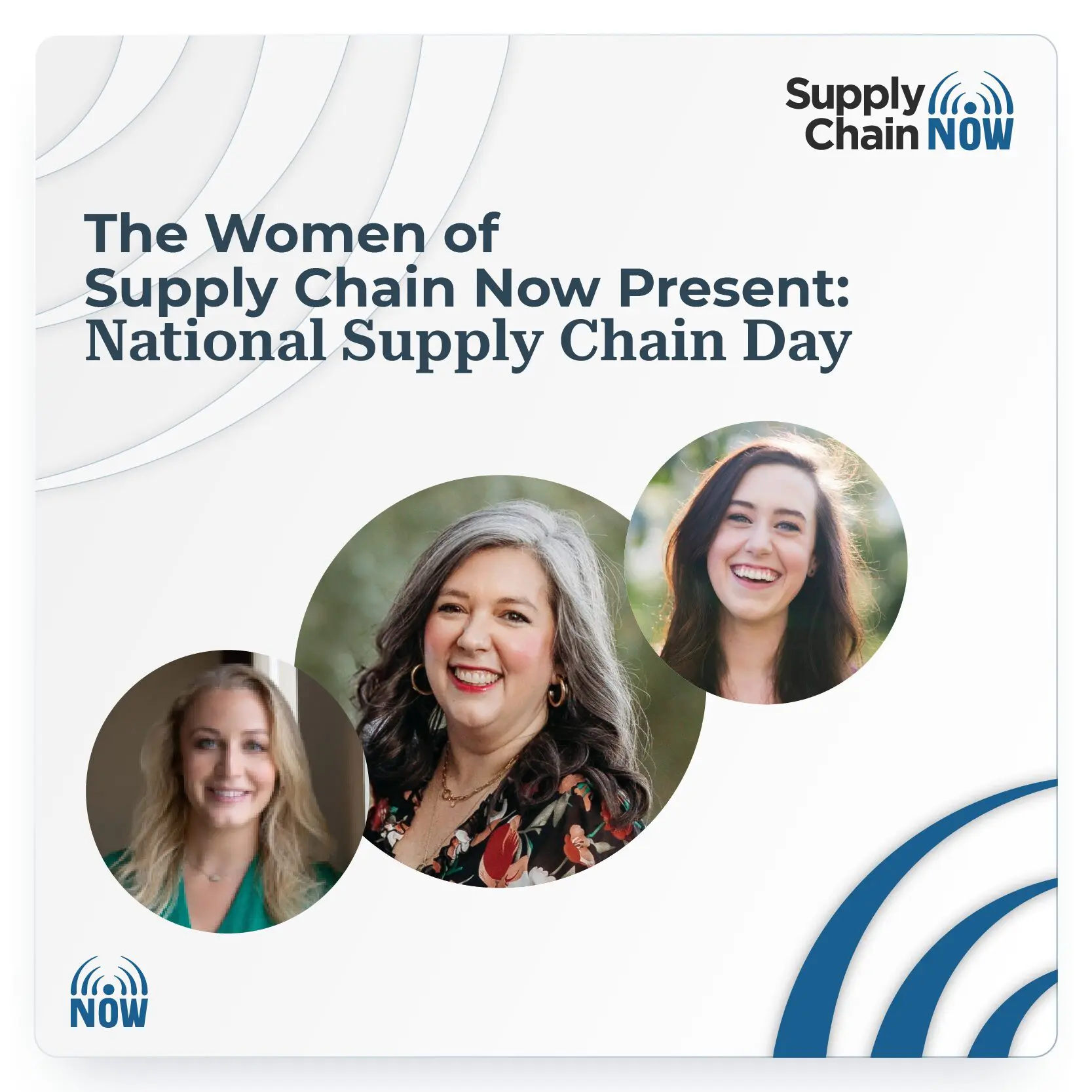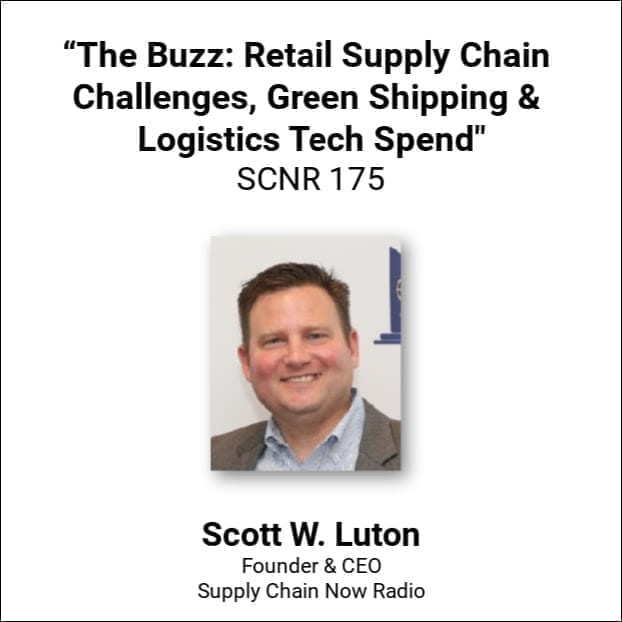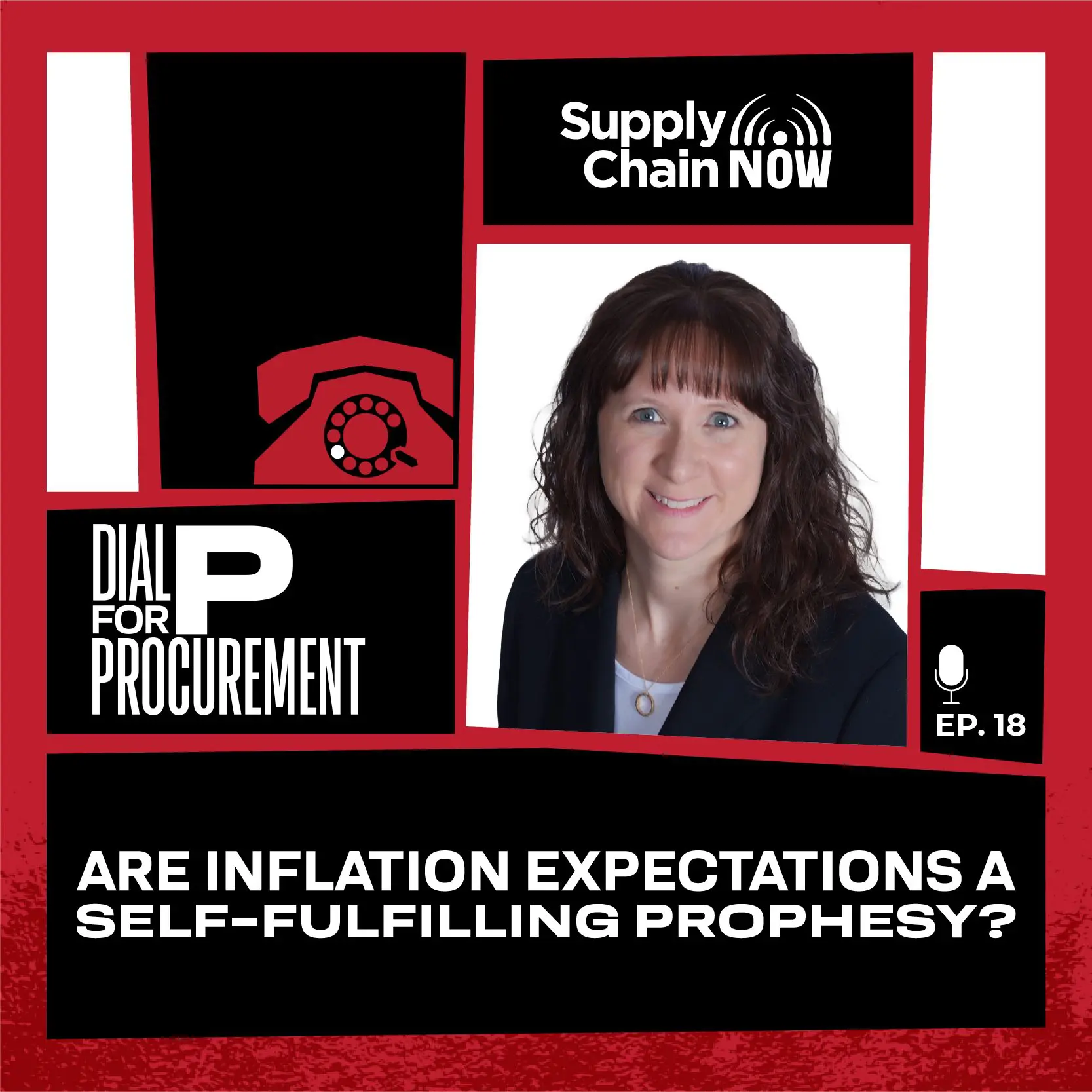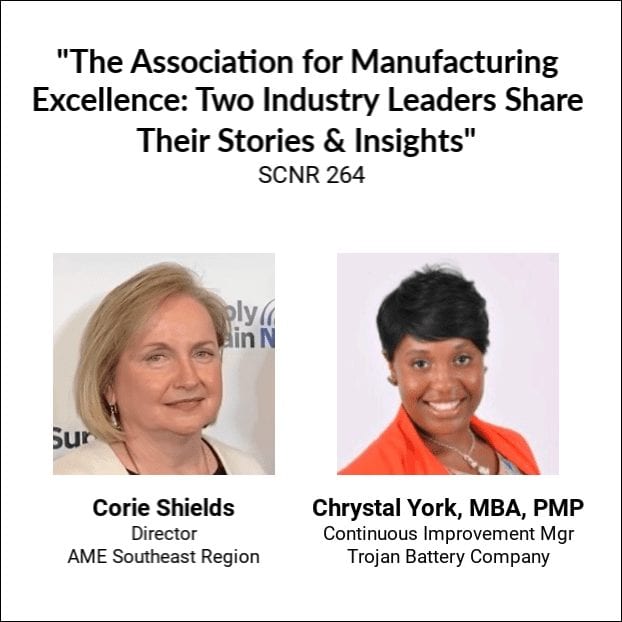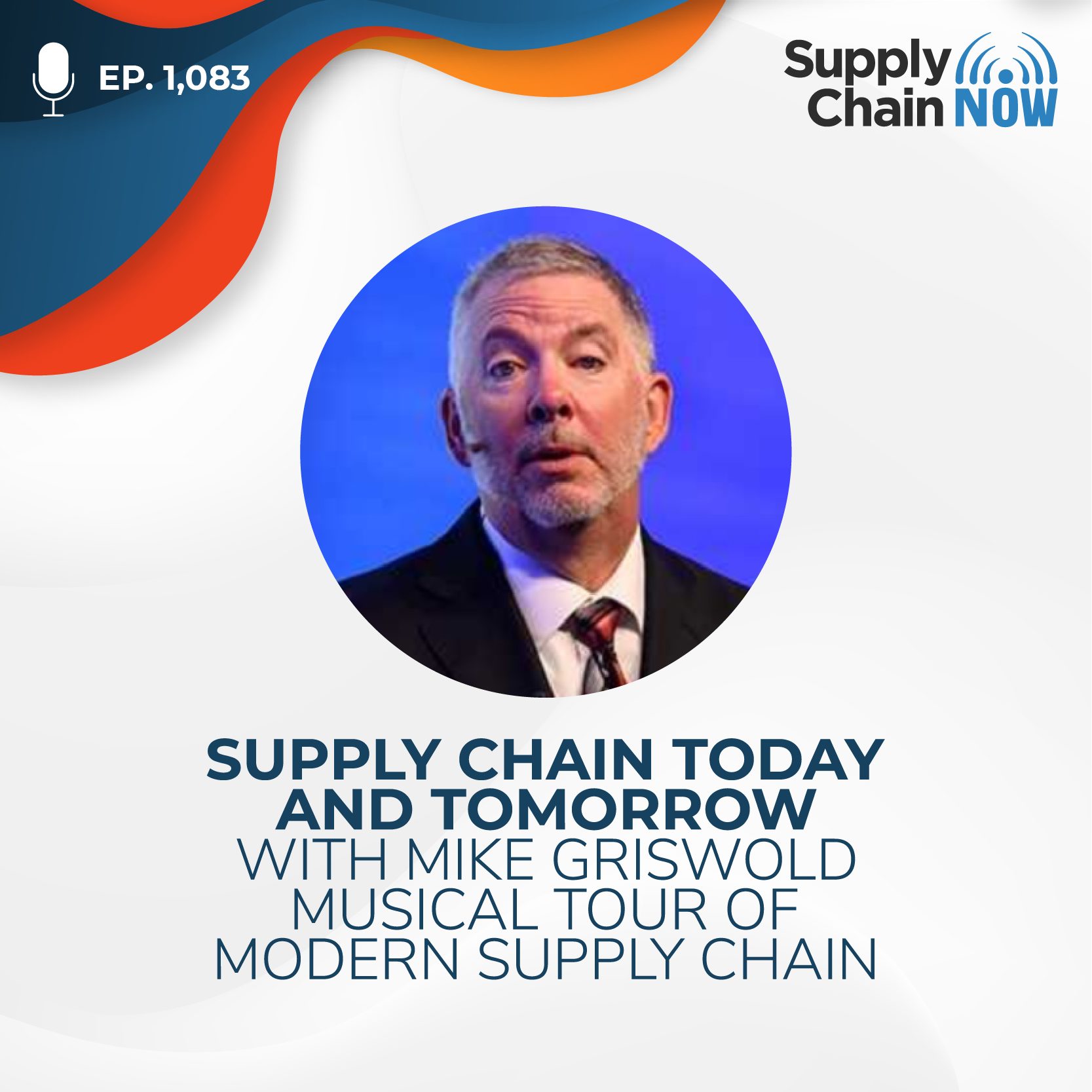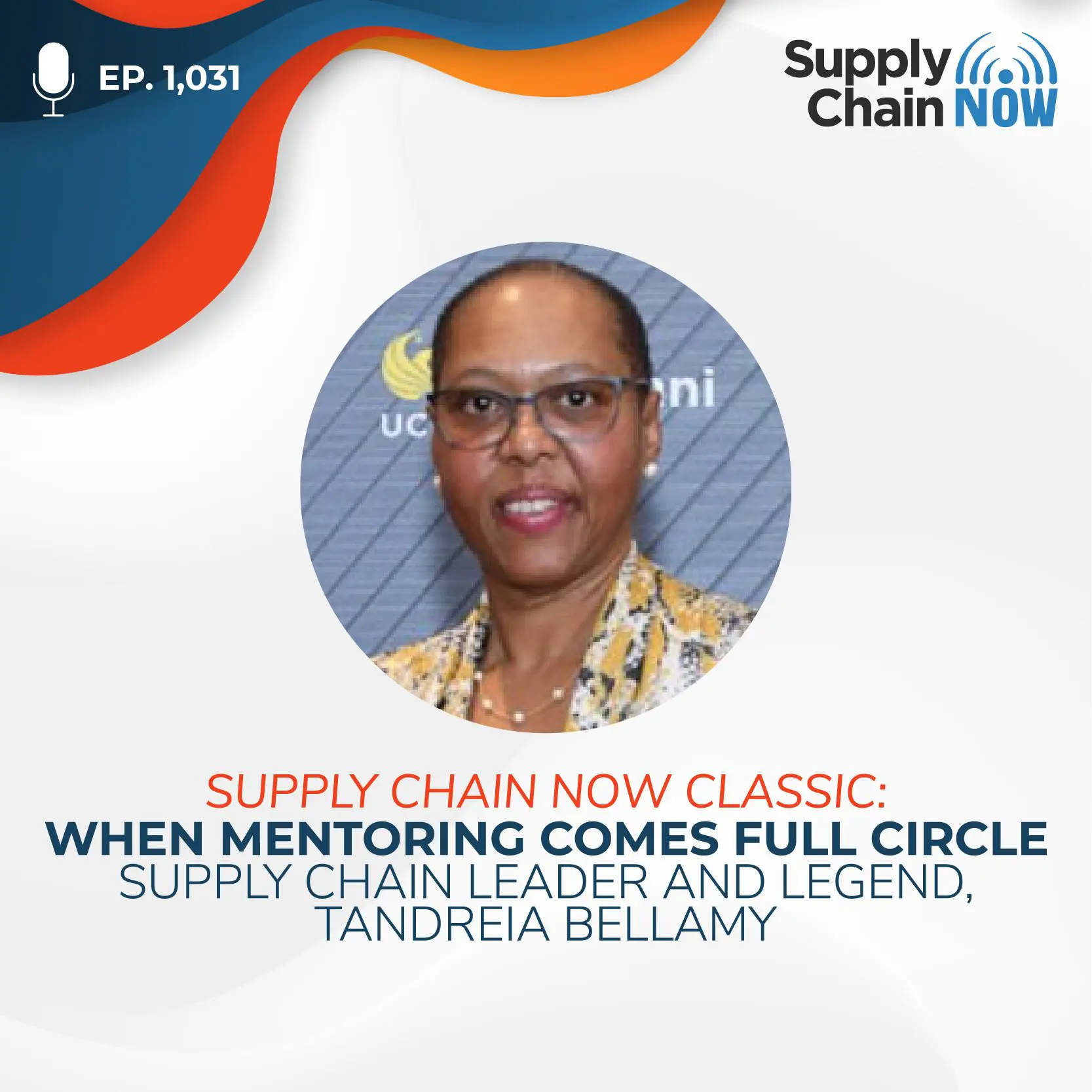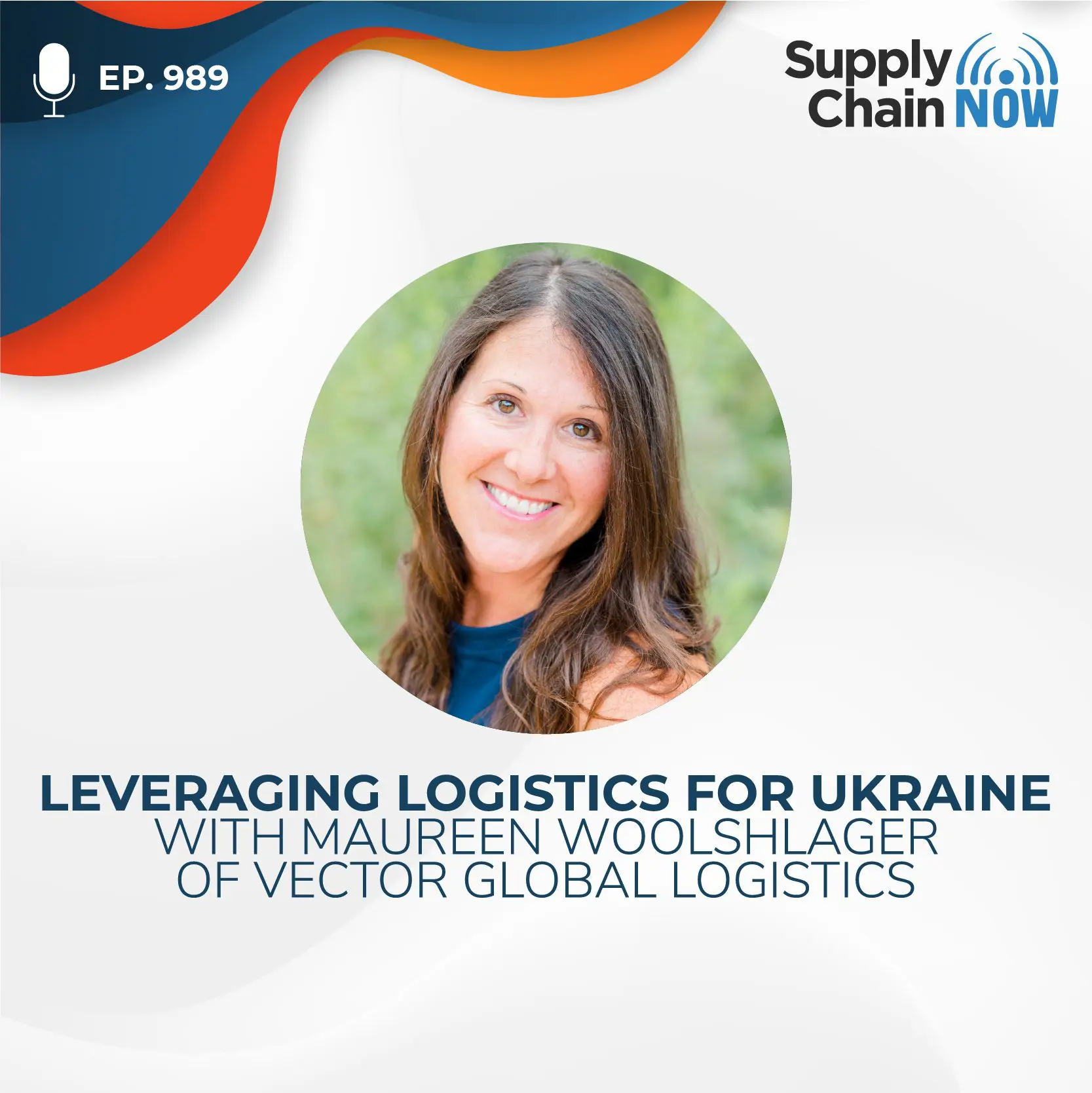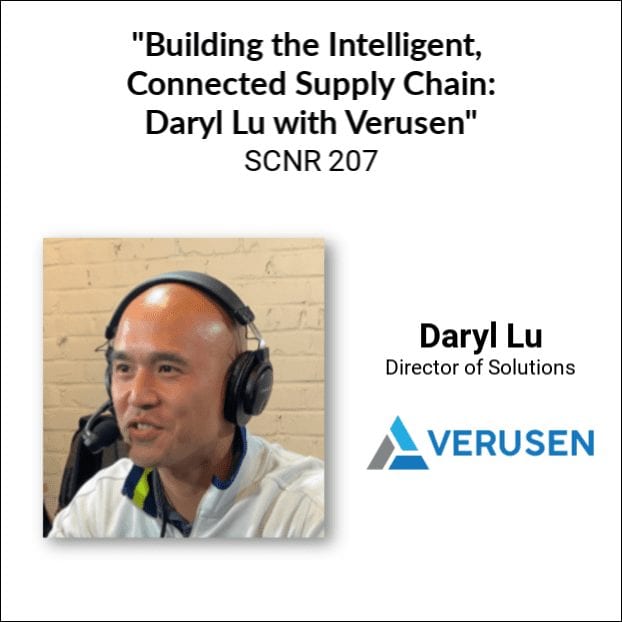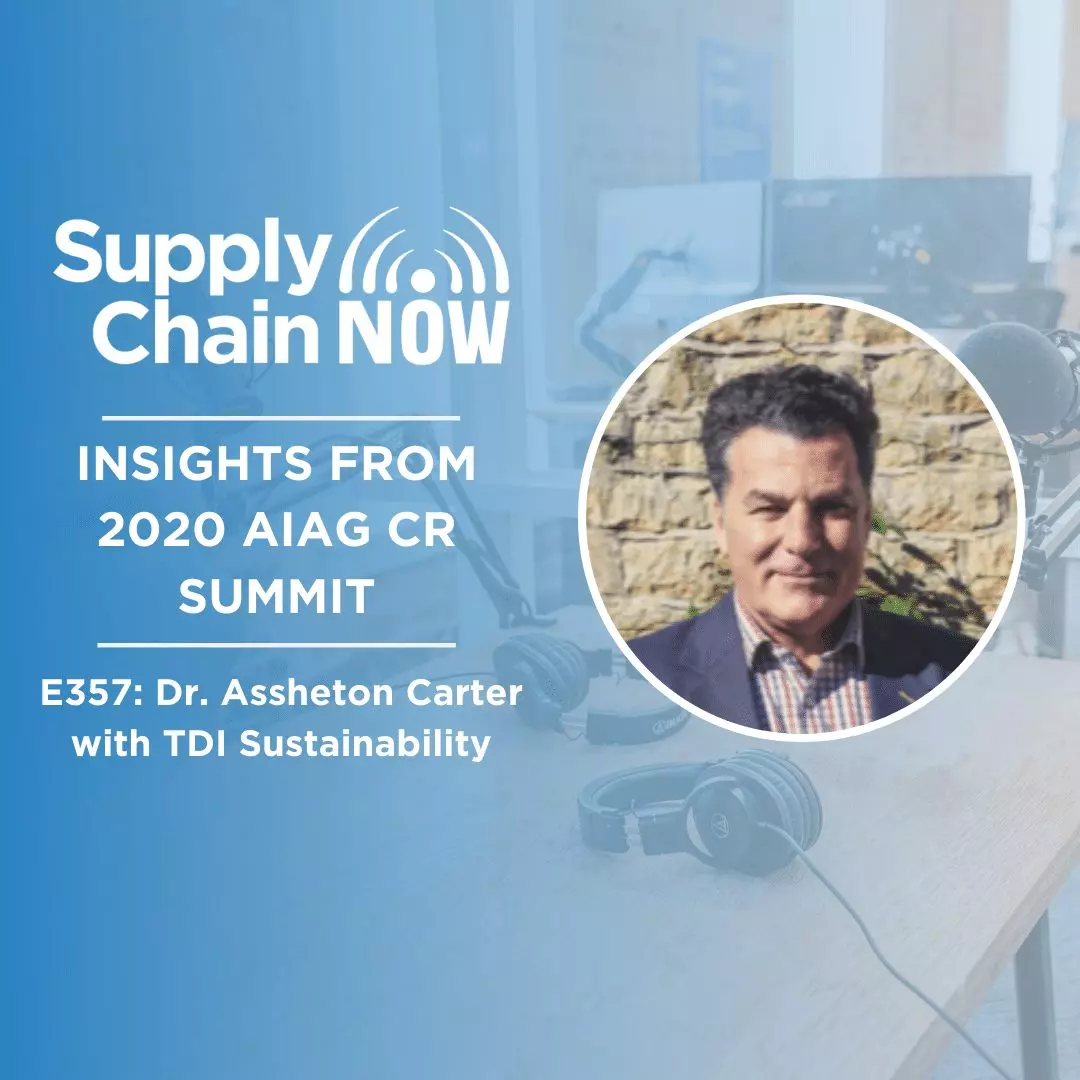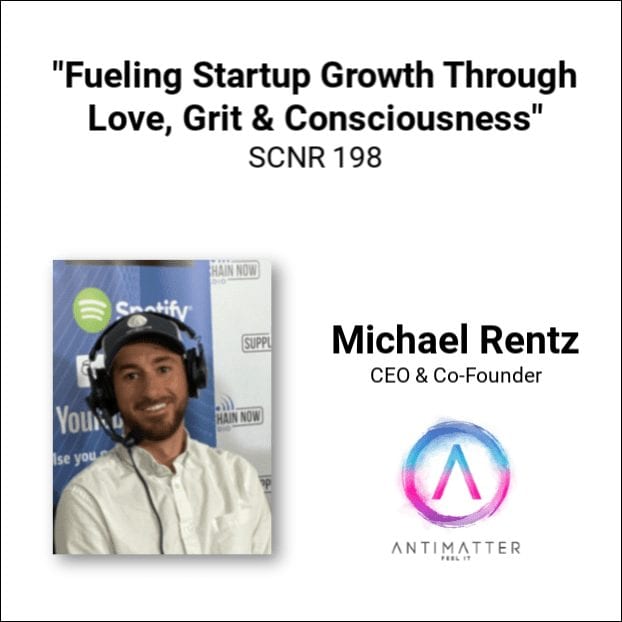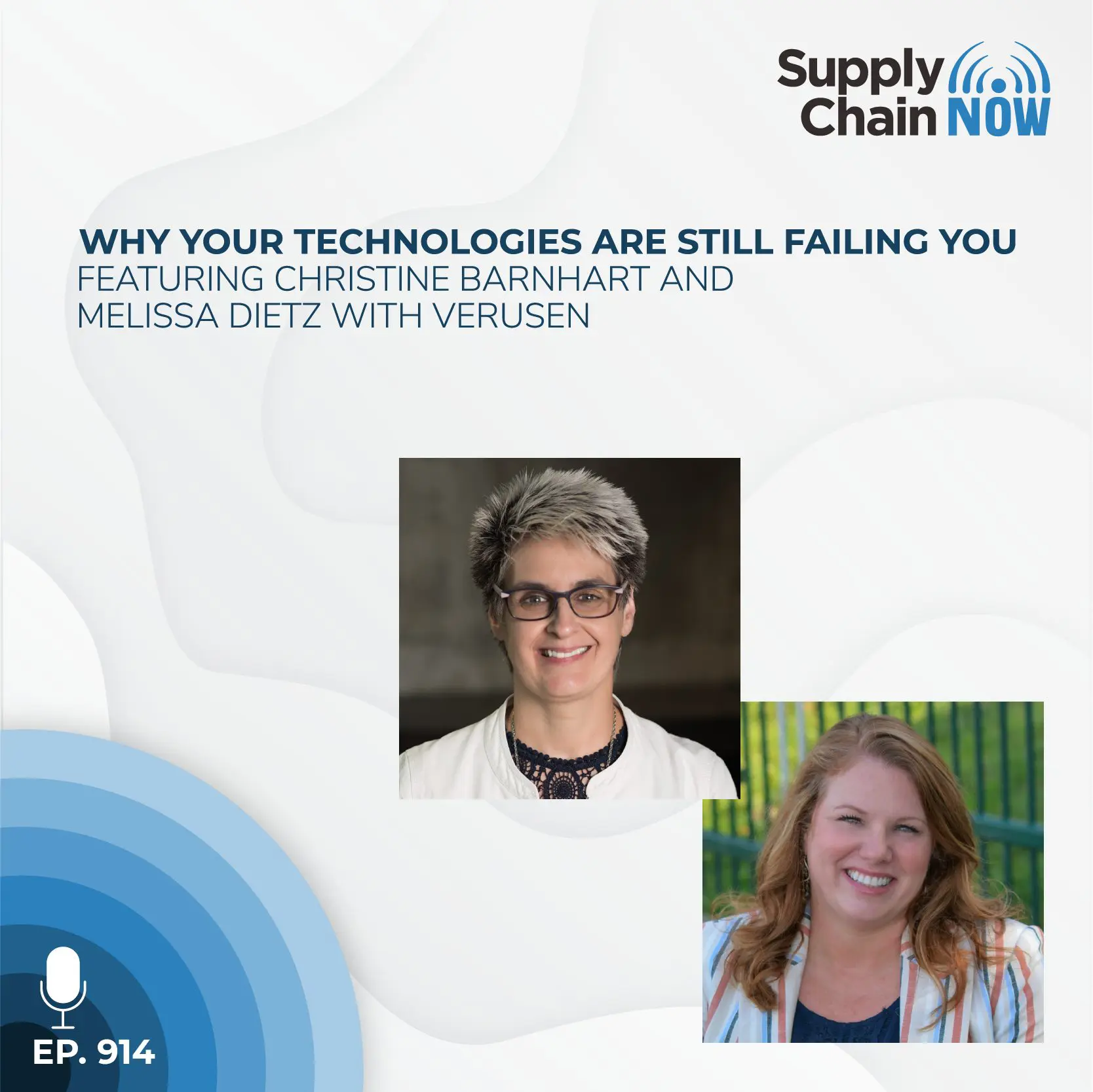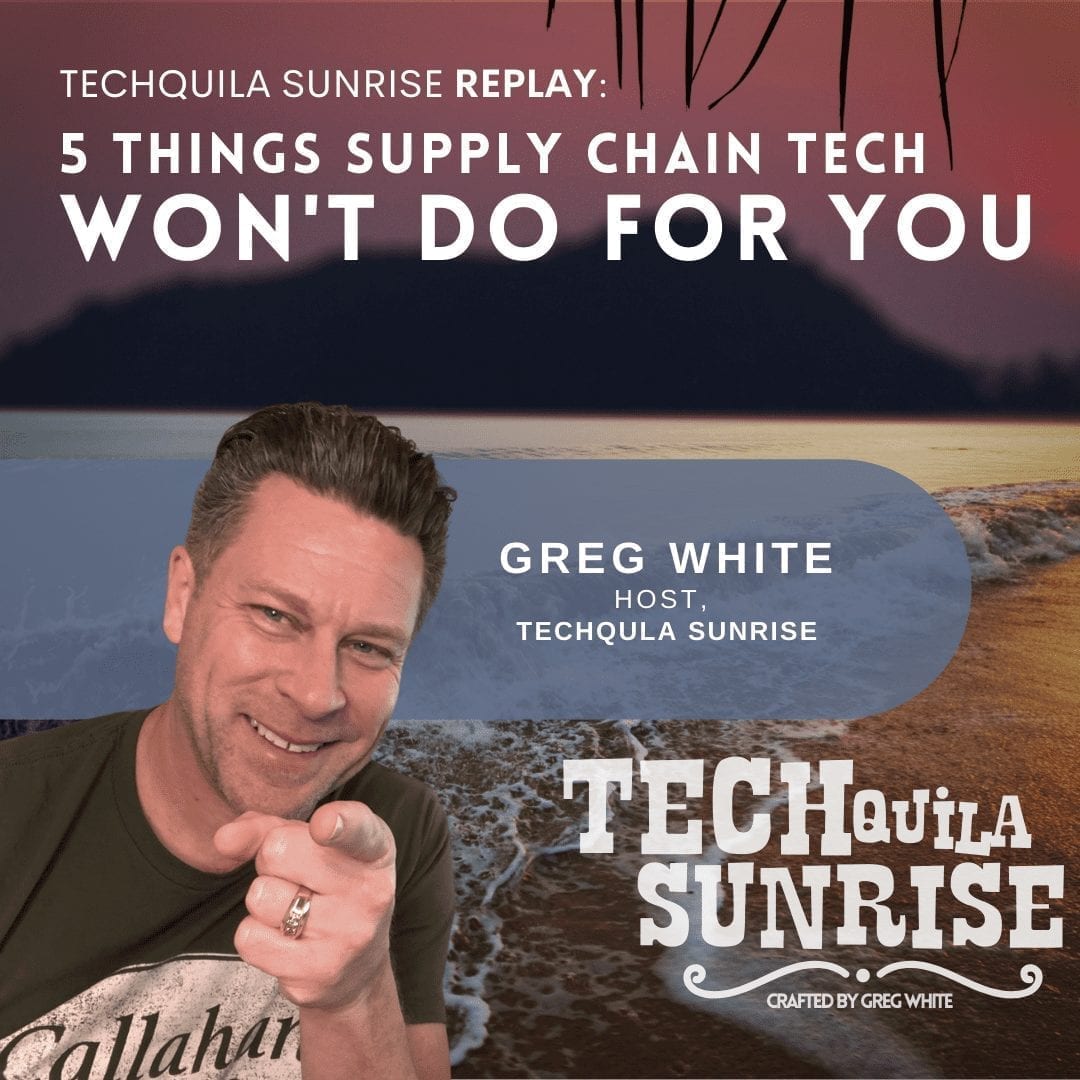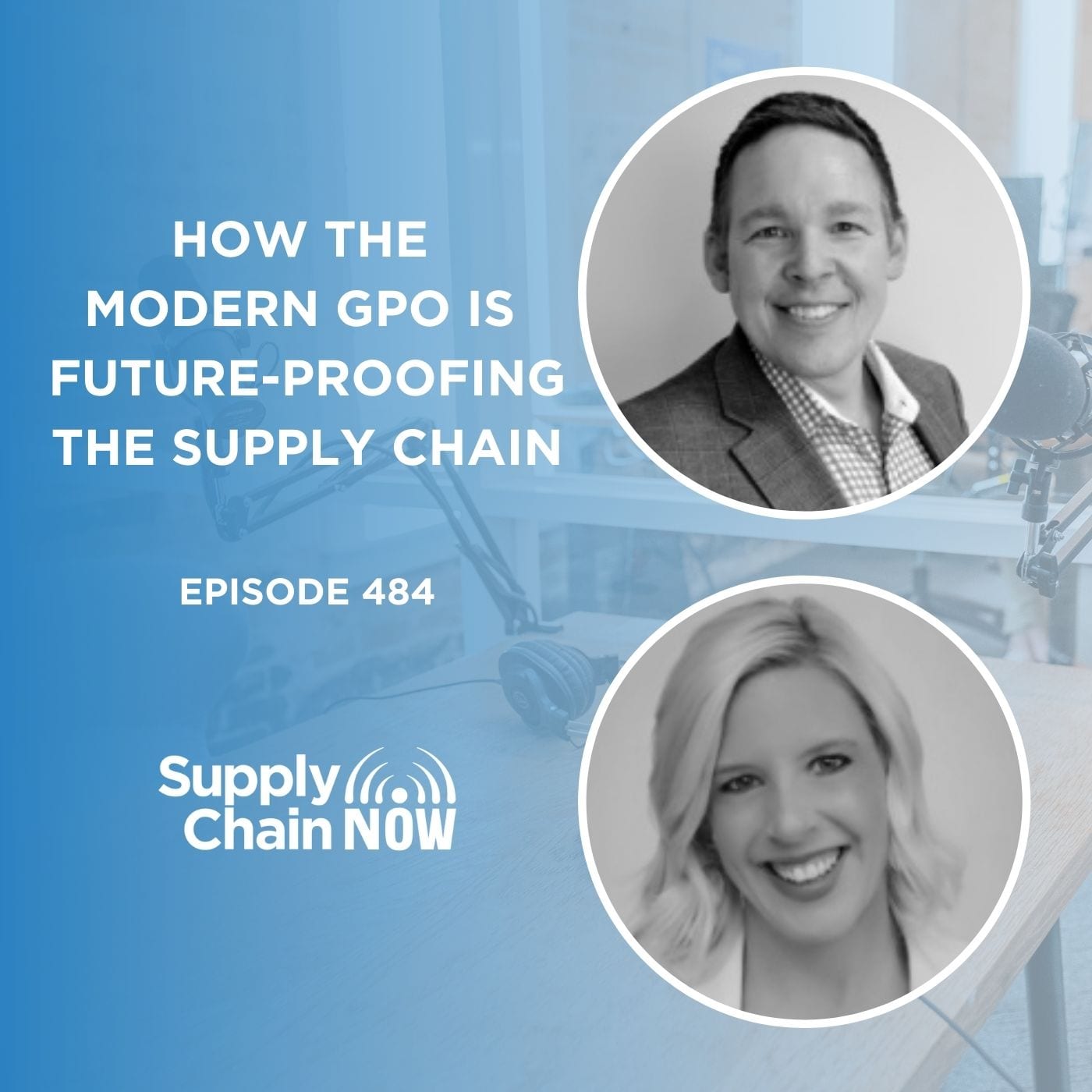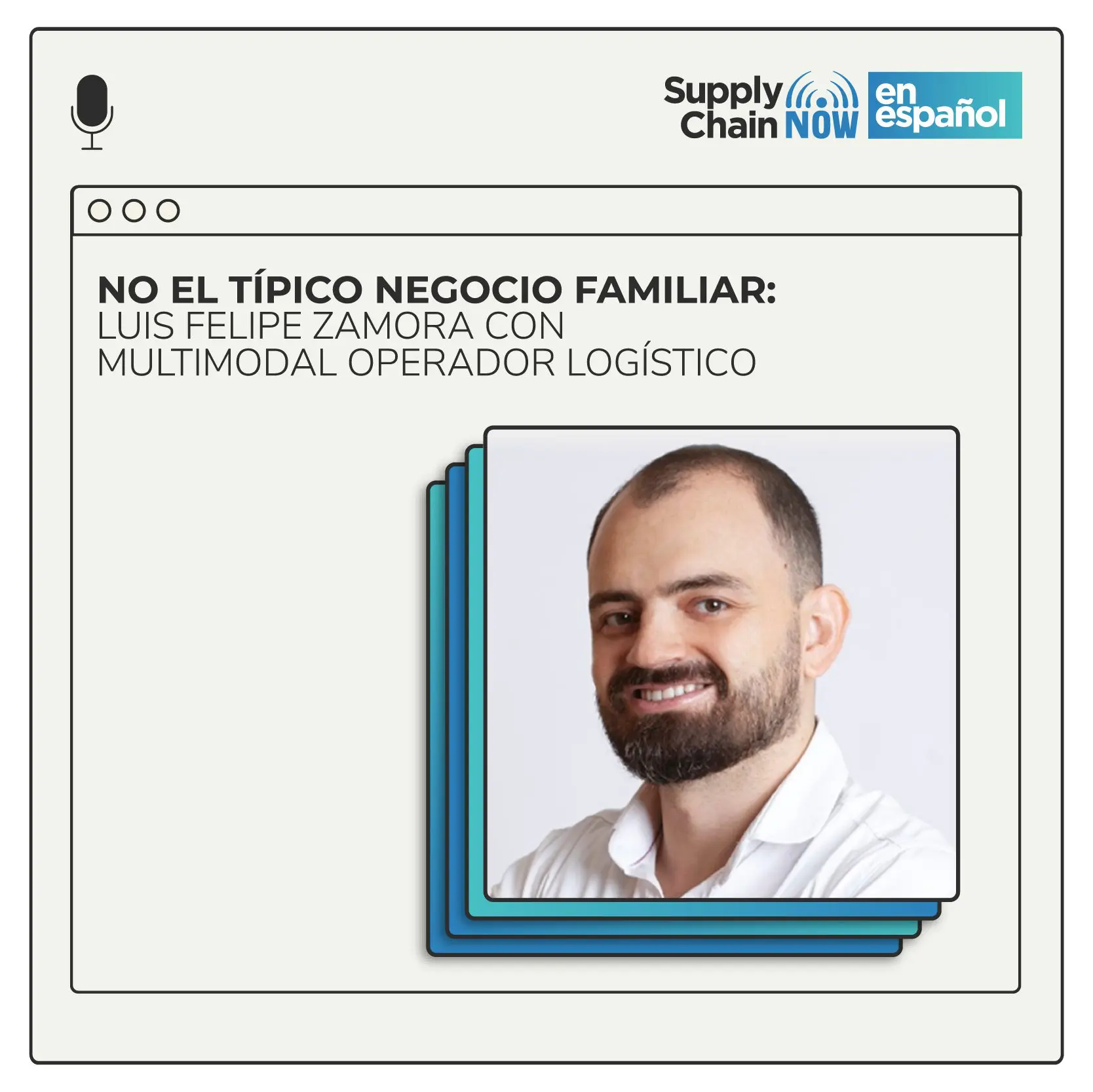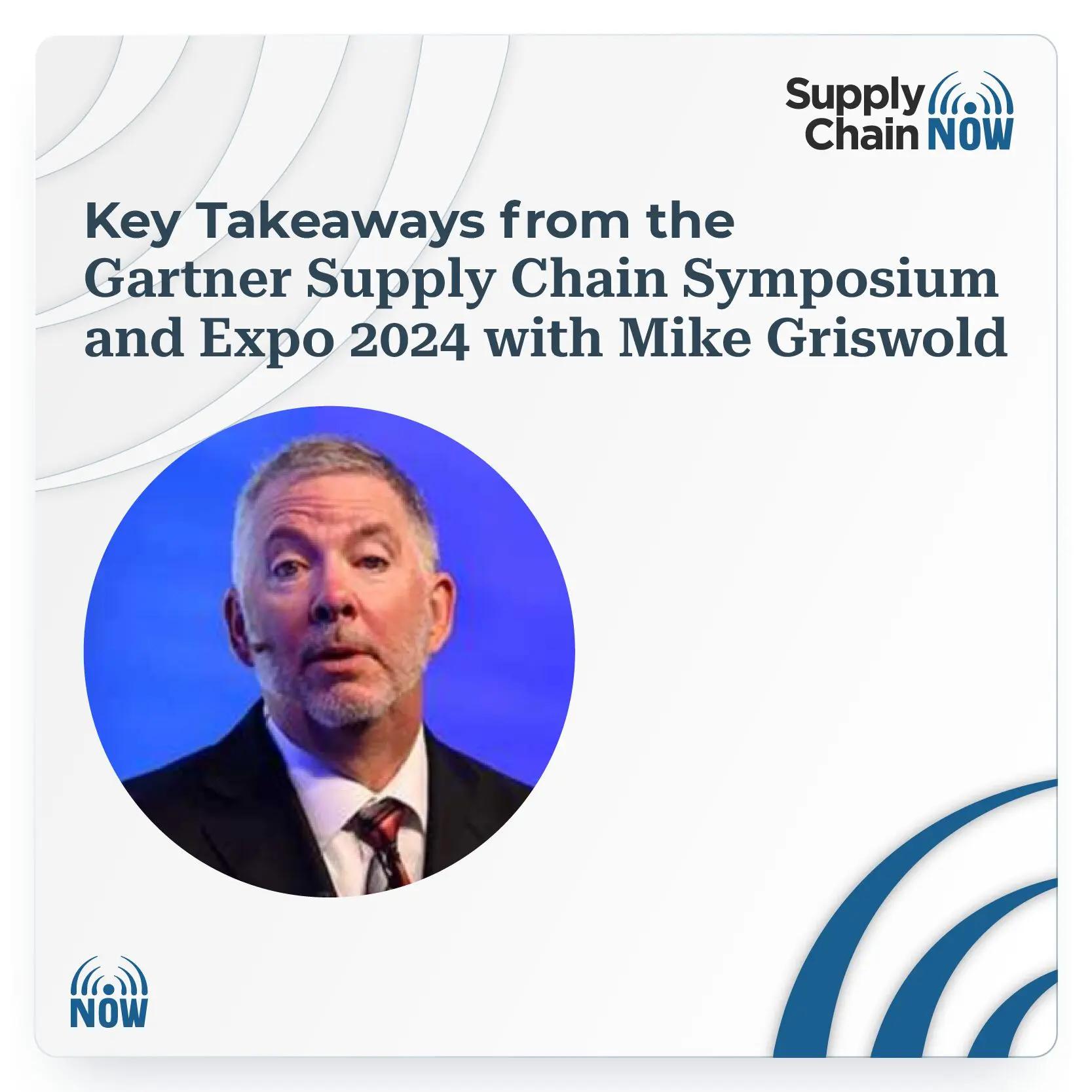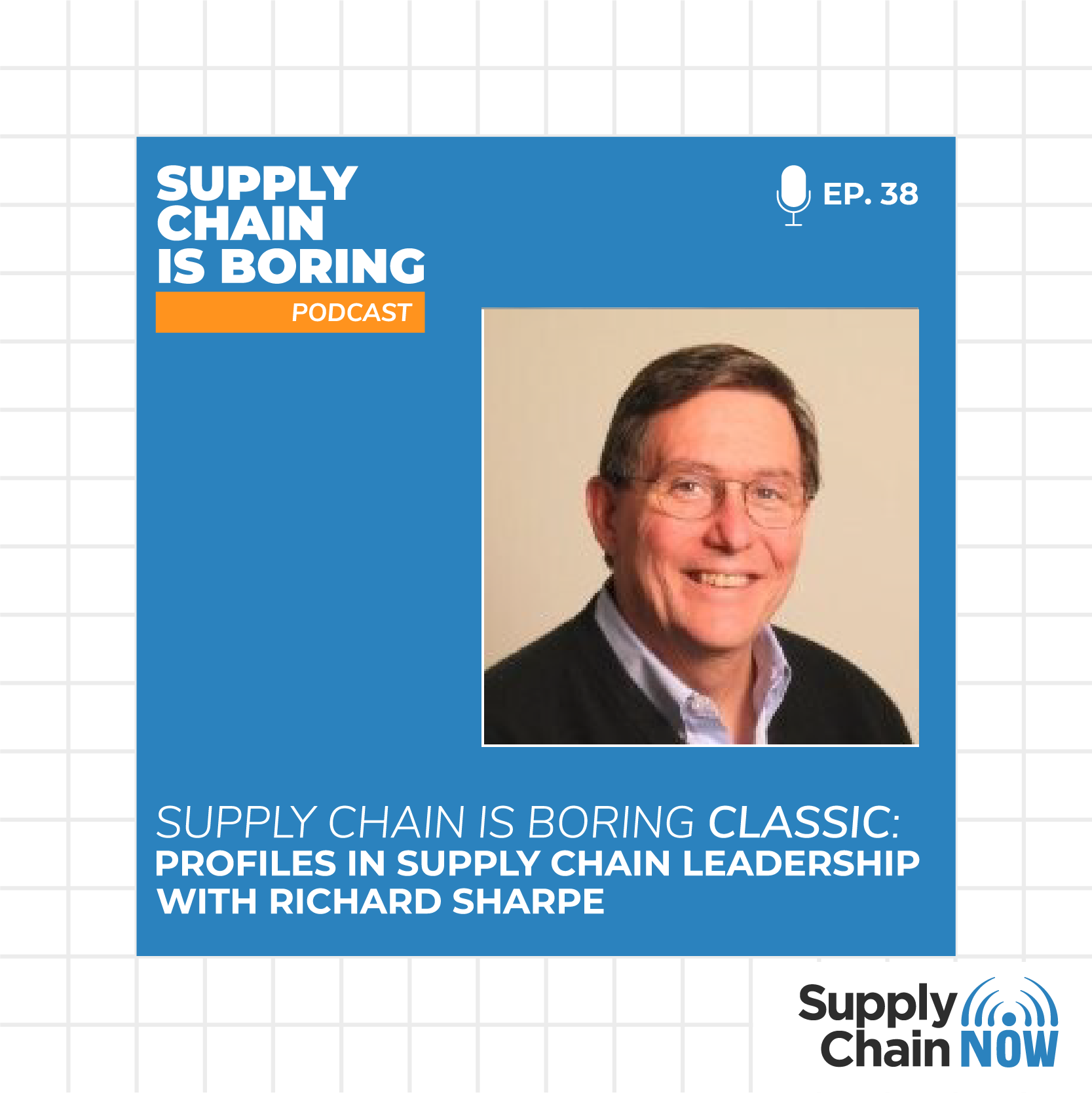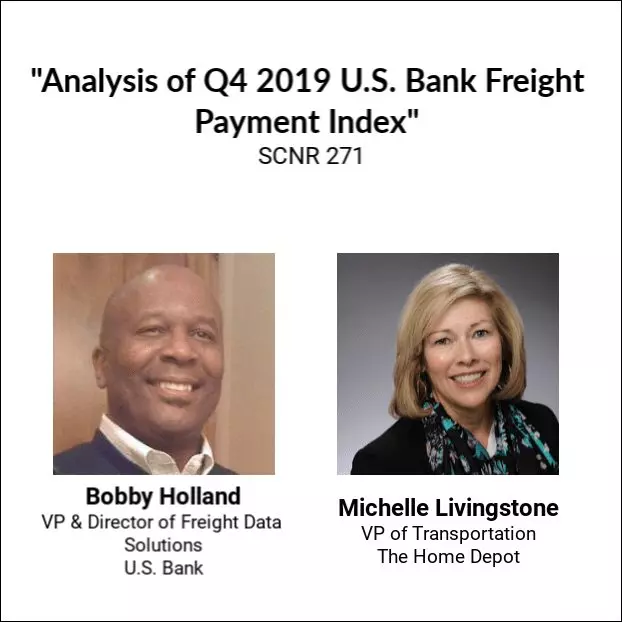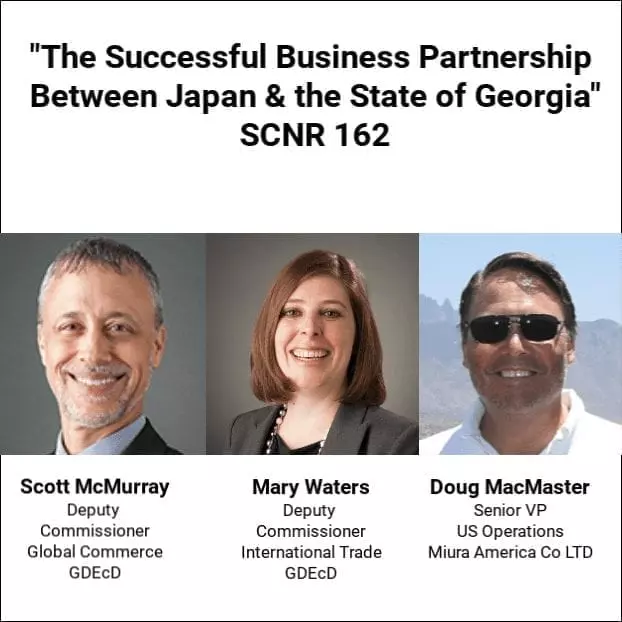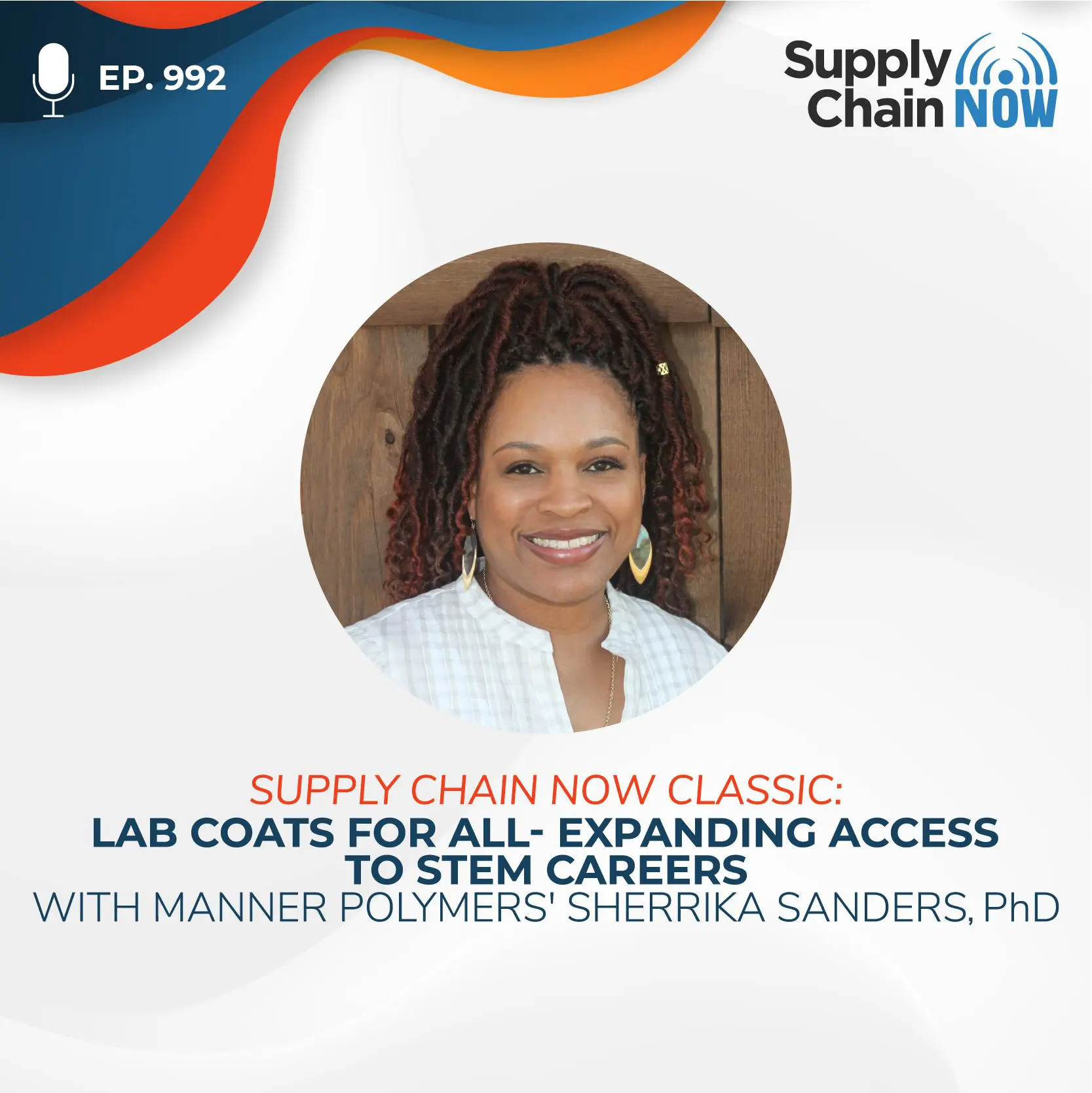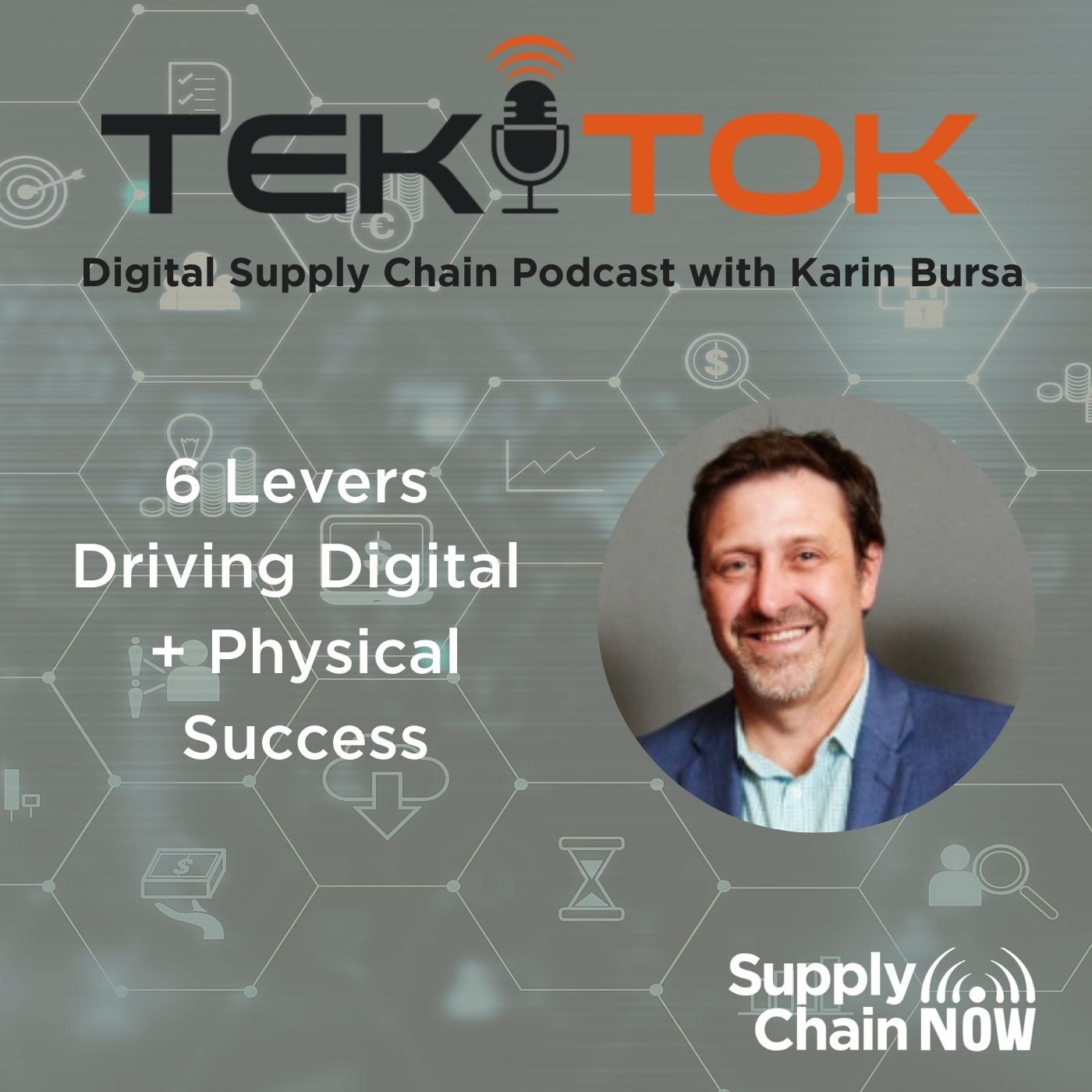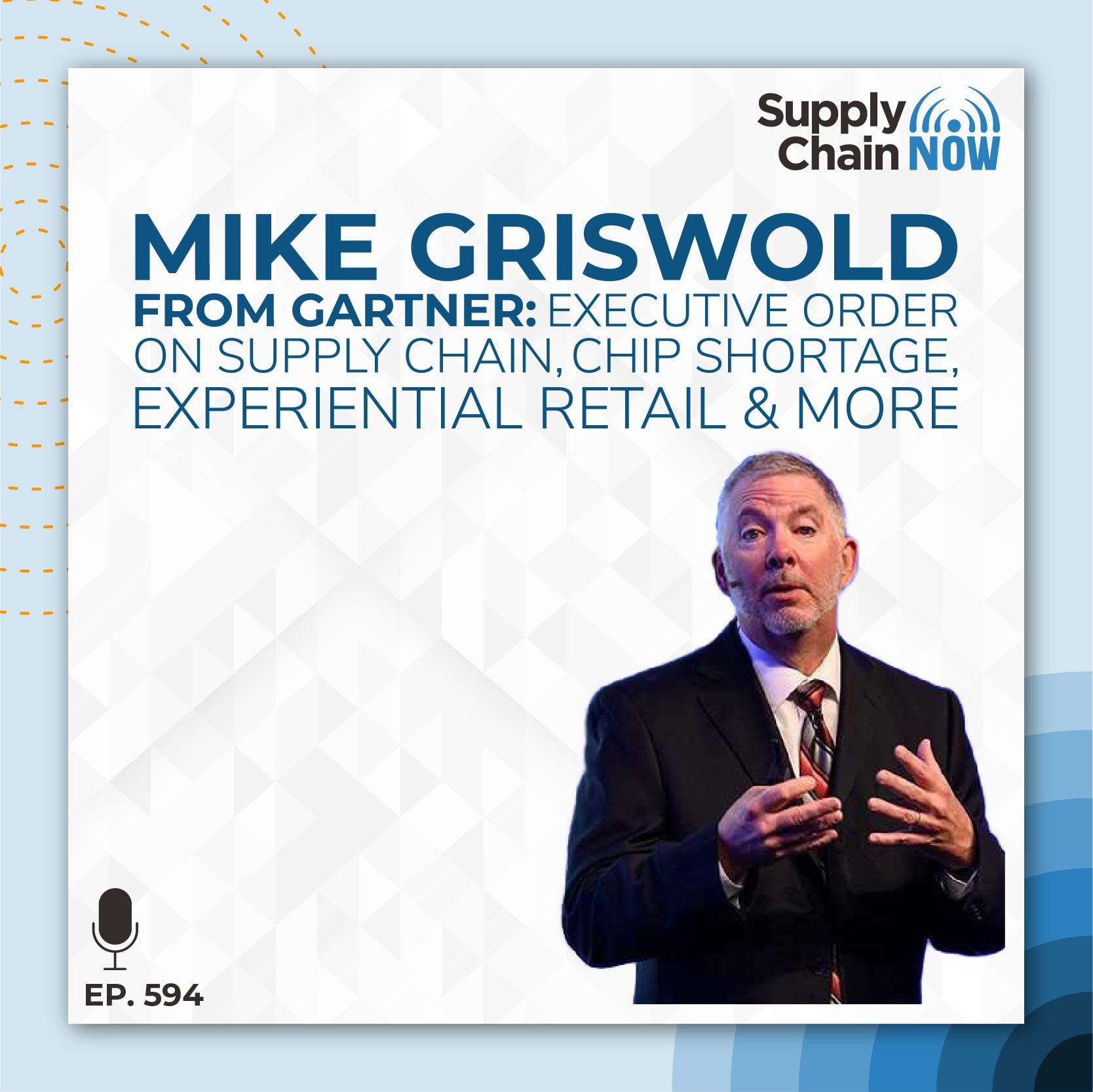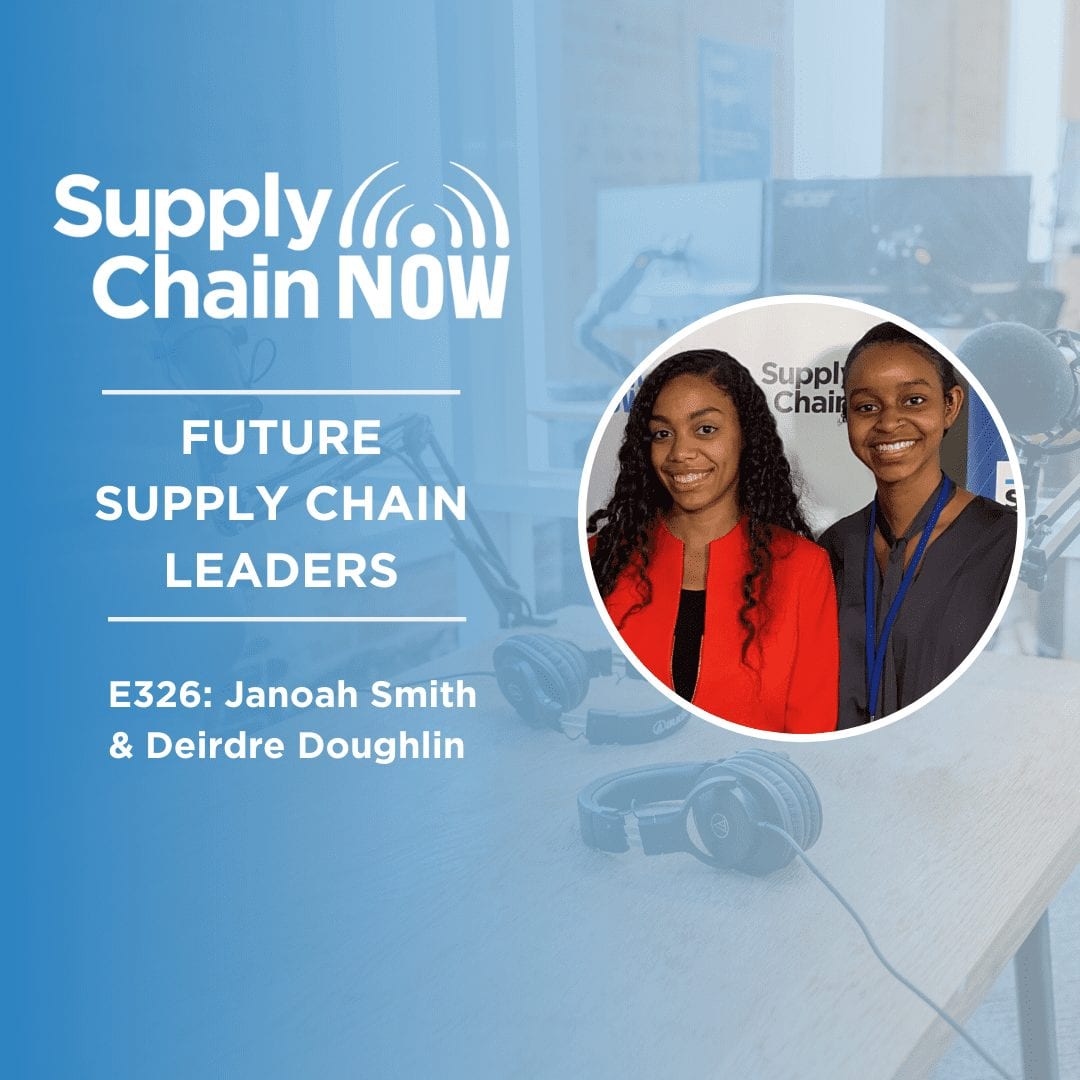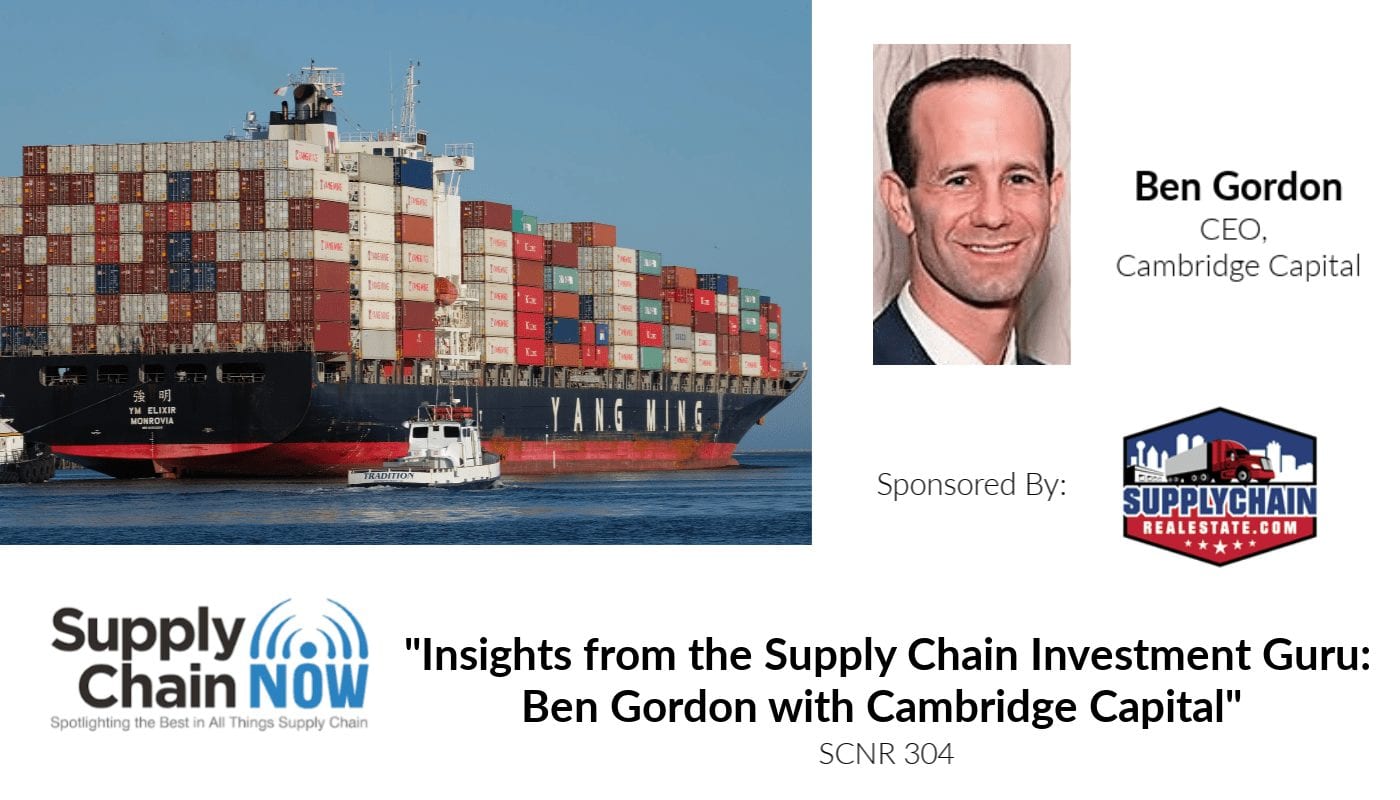
Episode Summary
In episode 304 of Supply Chain Now, Scott and Greg welcome Ben Gordon and Ward Richmond to Supply Chain Now.
Episode Transcript
[00:00:05] It’s time for Supply Chain Now Radio Broadcasting Life Supply chain Capital of the country. Atlanta, Georgia. Supply Chain Now Radio spotlights the best in all things supply chain the people, the technology, the best practices and the critical issues of the day. And now here are your hosts.
[00:00:29] Good afternoon, Scott Luton here with you, Bob on Supply chain. Now welcome back to the show. Today we’re continuing our popular Supply chain real estate series brought to you by none other than Supply chain real estate Dot.com. Stay tuned as we’re going be interviewing big thought leader in space that will certainly absolutely increase your Supply chain IQ. Quick programing note you can find supply chain now wherever you get your podcast from Apple podcasts, Spotify, YouTube, you name it. Love that and subscribe so you don’t miss a thing.
[00:01:02] Let’s welcome in our fearless co-hosts here today, Mr. Ward Richmond, executive Vise president and shareholder at Colliers International. Ward, how are you doing?
[00:01:09] Great, Scott. Always be. Always good to be back here in Supply chain City, Hotlanta. Georgia.
[00:01:15] Absolutely. We had it. We had one heck of a day. Yeah. And it’s very rarely do we get the chance to speak to leaders like we have here today. We’ve got a great special UPS so tied up here. So you come back to Atlanta as often as you like to you bring guest like this.
[00:01:30] That’s right. We’re going to we’re going to try to make it happen. There are very few guest bend’s caliber that we can bring to the show. So if you want to move on and well, I guess we need to introduce Greg here and get to bed. Well, I agree with you.
[00:01:46] We are pleased to have Greg White in studio with us as well as usual. Serial supply chain. Take your supply chain adj. trusted advisor. How you doing?
[00:01:58] I’m doing great. It sounds really great when you hear it say that and you say it in front of somebody like that and you find out just how adj. you are.
[00:02:06] Yes, that’s right. Oh, I get the title right. So we’ve already referenced gosh I let the cat out of the bag. Yeah, I know. Let’s go ahead and welcome in our feature guest today, Ben Gordon, managing partner and CEO at Cambridge Capital, but also founder of ptsa, which is a leading investment bank focused on the transportation Logistics space and really core to most people, it is the lead.
[00:02:31] The investment bank in the big afternoon.
[00:02:37] Scott, nice to speak with you. Thank you for the kind words I’ve been asked to speak with my wife family in his own village.
[00:02:45] That’s that conversation.
[00:02:46] But as as we chatted briefly in the pre-show conversation. Love, you’re at the social media thought leadership you put out there. I think just earlier today linked to the editors, picked up something that you had contributed to the food industry and some of things going on in China. So clearly the industry is tracking you and to have you on supply chain now with our friends. Would you please to pick your brain a bit? Or you bet. Before we get off to all that and talk shop with you. Talk industry and really Sheer that that good stuff with our audience. We want to learn more about Ben Gordon, the person. So for starters, Ben, if you could tell us where you grew up and give us give us the skinny in your upbringing a bit.
[00:03:33] Sure. Well, Scott, first of all, thank you.
[00:03:36] And Wordin Gregg, pleasure and I appreciate your inviting me and I’m delighted to be a part of your show.
[00:03:43] My upbringing, I grew up in Philadelphia in middle class suburbs, and I can’t say there’s a little boy I dreamed of Logistics. I was like like most kids growing up. I played sports, actually. I went to the same middle school that Kobe Bryant went to, although I can’t claim new said any of the records that he broke. But but, you know, I I I was the son of a doctor and a marketing communications consultant, but I had a grandfather who had a trucking company and a Logistics company called EMI. And my grandfather had started A-MEI in 1948. It really became a leading truck leasing company with other capabilities throughout the Northeast. And I watched the business that my.
[00:04:40] Bill?
[00:04:41] Well, I thought, you know, it would be great to be able to cut and create jobs and change the industry and really do something lasting and insignificant as he had done.
[00:04:50] And so originally I thought that I might go into the family business. I don’t want to be the guy that had the job because he was related to the owner, because I wanted to be able to, you know, make make my mark on my terms and as someone that had earned what he created. So I went my own way. I was a strategy consultant in Boston for three years after Yale and before Harvard Business School. And I worked with lots of companies in different industries, but I did look for opportunities in transportation and technology. And then while I was in business school, I wrote what I thought was that exciting business plan for my grandfather to use technology to help automate the back hall for his truck leasing business. So the idea was you had freight going full one way, coming empty, coming back empty. And my thought, which in hindsight sounds pretty obvious, but at the time was with the novelty was why not use the Internet to do that? So so I wrote a whole 80 page business plan and of course, like like lots of kids in their 20s and kids in business school. I thought I was a lot smarter than I was. And I was I was proud of this plan. The plan was not as good as I thought it was. And my grandfather told me so. And he said, Hey, Ben, this is a good plan, but I have a better one. And I said, well, you only read four pages. Don’t you want to see the rest of it? And he said, no. I said, Well, how are you so sure?
[00:06:13] Nation must run in the family and the Gordon family.
[00:06:16] Yeah. Yeah, he he absolutely told me what he thought. So I asked him, how do you know? And he said, Well, Ben, I’m selling my company. Good luck. So I kind of sat there thinking, wow, I guess I guess my plan was not actually going to happen the way I envisioned it. And sure enough, he sold his business. It’s now part of Penske. And I thought, look, you got a plan. If you believe in it, what do you do? You go for it. All right. I mean, you know, war, you’re you’re an entrepreneur, that it’s gone for it. And in real estate, you I’m sure you can relate to that. And you know, Scott and Greg, you guys are building your own venture here, too. So you know that any entrepreneur has to be willing to believe in himself or herself first and foremost. So so I ended up turning that plan into what became a company called Three Plex. Three Plex was my first startup. It was over 20 years ago. What today you would call a SASC TMX company. Transportation management systems company. And so what does that mean? Well, the Logistics guys on this call know that. TMF As an operating system that helps run a Logistics business and that’s what we did. We were using the Internet to allow three P L’s to run their business more efficiently.
[00:07:34] And what’s interesting about that then is that three Plax like three P.l. Execution software. The name was Oh, the industry guys liked it.
[00:07:47] The venture capital guys hated it. They want to know what the hell is a three plex. But guess what? The customers ended up seeing it as a compelling way to help three peoples. And and the story then is the same story now, which is that, you know, has as the saying goes, rumors of my death are greatly exaggerated. And rumors of the three peoples death were greatly exaggerated then and are greatly exaggerated now. People thought the Internet was going to put them out of business. And as we know today, that didn’t happen. Our view was we would use technology to help three peoples be more competitive. And so that’s what we did. And we built a business and raised a lot of money. Who raised twenty eight million over three rounds, three years with firms like Morgan Stanley, Goldman Sachs Bank, Boston Ventures, CnF. Now, Conway and we ended up selling the company in 2002 to Maersk. And so, you know, that was my first entrepreneurial journey. I was twenty nine when that happened. It wasn’t a home run, but but it wasn’t a strikeout. And. And that’s really what set me on my path. So that’s that’s what led me into this crazy industry.
[00:08:56] So when he said. Twenty nine year old. Yes, to raise twenty eight million at twenty nine. What we’re also in the feedback you got from your peers.
[00:09:08] Well, back in business school, I think some people liked me.
[00:09:18] My my friend Tanya, who became my co-founder. Some people hated me and probably thought I was an asshole and I probably with good reason.
[00:09:28] A lot of people were watching because, you know, this was a little bit of a period piece, right. I mean, so really I mean, I was nine when we sold the business. Twenty six. When we started it. And, you know, ninety 2000, 2001, this is the time when the Internet really took off.
[00:09:45] You had the bubble then you had the bursting of the bubble and you had a small number of survivors. And so, you know, I went through a cycle where, you know, in year one we all thought we were brilliant and we’re going to build the next, you know, billion dollar business. And then the bubble burst. And it was devastating to have to go through the restructuring and have to lay people off that I thought were fantastic, including friends of mine. And to make the difficult decisions about, you know, cost cutting, you know, shifts in the business model and then to come through it in the end with something, again, not a home run, but with an exit. You know, that was those three years were like dog years. It felt like twenty one years. And so, you know, it was humbling because on the one hand, I learned a tremendous amount. And I think I went from being on top of the world to feeling like I was underneath the world. But in the end, you know, what I realized was we had an idea that worked. We we spent too much time and money on elements of the plan that, you know, we ended up meeting the change, which, you know, really revolved around the fact that we spent a lot of time and effort on a key Hamas.
[00:10:59] But it turned out that the Drage management system helping steamships coordinate what happens with containers when they came into the port, that ended up being the reason why Maersk bought the business. So the thing that was the most valuable in the end was something that I gave zero thought to in the beginning. And it really was a lesson for me in the value of adaptability. And today, as an investor, when I look to back entrepreneurs and founders and CEOs, I look for those qualities of adaptability, because I know from my own experience how important that is. And I know that I didn’t have as much of it as I should have in the beginning. But I think over time, really learning through mistakes, I’ve gotten better at it and I’ve certainly gotten better knowing what to look for. In other founders and entrepreneurs, I think that was a really valuable cycle for me.
[00:11:49] You know, I can’t imagine. Ben, before we talk more rigs, I ask you a few questions. Run your professional journey kind of from there, from that exit forward. But before we do that, you see your dad, your granddad had a trucking business. Clearly, your first venture, those very successful, that plex was in transportation.
[00:12:09] And since that time, you know, your take on the end to end supply chain industry. You know, the world values. How did you know to put your bets on transportation in that first venture? What told you that? That’s where your money needs to be.
[00:12:27] Well, there was a guy named Dave Perry. Dave Perry was three years ahead of me at Harvard Business School. And Dave knew something about the chemical industry, the background at Exxon. And he decided to start one of the first Internet companies, a B2B exchange in the chemical realm. And I watched what Dave did and he built a fantastic company, grew it. It was at its peak. Three years later, it was worth $10 billion. Even though the Internet inflated everything. So maybe it was never really worth that. But, you know, he built a fantastic business. And I thought what Dave did was really create a model or using new technology to help transform an old industry. And I thought maybe I could do in transportation with Dave didn’t chemicals.
[00:13:16] And I had the advantage of knowing something about transportation because I’d spent some time in it as a consultant at CDI. And, you know, as a as a kid with some exposure to the A-MEI truck leasing and transportation business.
[00:13:31] And, you know, I looked around and I a lot of smart classmates and none of them was going into transportation. And I always figured I’d rather try to do something that didn’t have millions and millions of competitors. And it seemed like that was an opportunity to apply some expertise I had in an industry. I knew where I would have an opportunity to have a little less competition and it could therefore make a bigger impact. And and that was really what gave me the idea. I probably underestimated the number of smart people in transportation in the competition that would be there. But I think that fundamental premise was a good one, which was try to go after a sector where you could bring some expertise that separates you from the pack.
[00:14:19] Wow, man, there’s a lot there’s a lot of lessons there. I mean, I think not not the least of which is. In talking about the kind of things that ban that you look for in companies that you invest in the agility. The flexibility, adaptability, those sorts of things, but also I think this is important and I find this frequently. I’m much better at coaching the companies that I work with on the things that I’ve failed at or screwed up. Then those things that I was successful at, it creates a certain sense of awareness in your mind that that allows you to help people prevent falling into those same traps. So it’s interesting, interesting and a little affirming to hear you say that. And so, so. So from that point forward. So tell us how you got to where you are. I mean, obviously, I’m sure you came away with that with a little bit of coin in your pocket. And maybe I don’t know if that’s when you started investing or if you went into other ventures. I have to tell you, I’ve remained and tell it in in tension early ignorant of your path here, because I’m just generally curious about it. So I’d love to hear a little bit more about that.
[00:15:37] Sure. By the way, you know, I have a son who’s 13 and we have a Michael Jordan poster is on his wall that says, I’ve missed more than 9000 shots in my career. I’ve lost almost 300 games. Twenty six times I’ve been trusted to take the game winning shot and missed. And that’s why I succeed. And I think that’s a pretty damn good lesson. Right. So. So I think, you know, you take your shots and then you learn what works and what didn’t work and you get better. And so I’ve taken a lot of shots and I’d like to think I’ve gotten better and better over time. So my my journey was really, you know, I started three Plax. Like I said, we sold that soda to IBM. We sold it to Maersk, actually, you know, to Minnesota, to IBM three years later. I then went and started Biji Strategic Advisors and built an investment bank. And, you know, over over that timeframe, we worked on around 50 deals in transportation and logistics. And what separated us from the pack was we really focused on understanding the business. I think most people in investment banking are good at deals, but they don’t tend to be experts in the industry. And we decided that we would take a different view. So by only doing transportation and logistics and really getting to know the companies, the CEOs and the key thought leaders in the space, it gave us the ability to see a little bit further into the future. And so when we got involved in buying and selling companies, we were able to use that expertise. I’ll give you an example. We sold a company called Converge. Converge was an electronic distributor and Converged had hired two prior investment banks and had failed to sell.
[00:17:24] It doesn’t just mean that there wasn’t a deal at a high price. There just wasn’t a deal. And so the owners of that business came to us and said, look, you know, we’ve heard good things about you, but they were skeptical of investment bankers because we’ve been burned before. And B, you need to convince us that you could actually get this done. So the easy thing to do would have been to look at the business and to think about people who like electronic distributors and go put a list together, write a pitch and go. We did something different. We really studied the business and we noticed that they had the small division that did something called EITI asset disposition or I had well, nobody really knew what the hell I had was at the time.
[00:18:08] But what I can’t really was as we saw it was reverse Logistics. They were going to companies and saying, let us help you dispose of remarket or recycle your used electronics, your laptops, your servers, your mobility devices. And so the idea that we had was that might be more valuable than just being a plain vanilla distributor. And so we really put a story together around how I had was, number one, important to the future of electronics and logistics and distribution. And number two, how converged was a market leader in that field? Well, guess what? It turned out that that worked. It turned out that that was the basis for not only a winning pitch, but also a winning outcome. We ended up selling the business to Arrow Electronics, although Arrow was one of three multi-billion dollar companies that got very aggressive in bid. I don’t think I can disclose numbers, but a very high price that was much higher than the company had expected. It was great for them. It proved to be the foundation for Arrow to build a new business and it really ushered in a new age of reverse Logistics in electronics and I.T. asset disposition that over the last decade has triggered billions of dollars in deals across dozens of companies. And so, you know, I think the key there was we spent the time to do the work to really understand the business. And that helped to unlock more value. And I think that’s what a great investment bank should do. And if we’ve been successful at GSA, it’s by taking the time to really understand the business instead of just treating everything like a quick transaction to flip. And so I think that was a key to our our strategy and a key to our success on the GSA side. So that was really the second chapter for me.
[00:19:59] But I realized that. Let me stop there. Yeah, please.
[00:20:03] So now, as you reference, I had to ask disposition. That is a huge business, especially as more more consumers and businesses are putting their there, their compromising information, confidential information, banking information, you name it, business information on their smart devices. And so when they’re in and I’m sure this not because, you know, but some of our audience may not make the dot what Ted does and why that’s so important. And I’ve been in his or her early thought. Space. Now, that’s very prevalent, common even. But yeah, and not just for consumers. That’s right. And for businesses that might have a fleet of people. Let’s just take this example. HFA have a smart device. They make deals happen on company e-mail, you name it, or when the company upgrades. And now they’ve got a thousand. You know, pick, pick your iPhone, iPhone ten that move an iPhone 11. What happens to that wealth of data that that is at risk? Right. I had companies take that and bet you could speak to a better not can. But they they wiped those phones. And in some cases they bring those phones back into the market for resale. Right.
[00:21:16] Well, absolutely. And it’s funny you mentioned that you probably don’t know this, but that’s that’s chapter three for me. I decided to go start a company focused on exactly what you said. So about a decade ago, a little over a decade ago, I went back to Harvard Business School to sponsor a field study focused on how could we help solve this. I had problem for consumers and we ended up I took the hardest working guy out of that group, gave him half the equity and we started a business called Eco’s Squid. And the point at Eco’s squid was in the squid was like the arms of the squid reaching out to create a marketplace to help give consumers an opportunity to bring their phones in and then to sell them, recycle them or remarket them in the secondary market. And so the idea was to give consumers a solution for all their used electronics, which, by the way, just to put a finer point on that. In 2010, e-waste was a 10 billion dollar market growing at 14 percent, which is five times the rate of all other wage streams, and consumers recycle less than 20 percent of all the electronic waste.
[00:22:32] So whether that’s old laptops or phones or other devices, they should be getting recycled, remarket or otherwise reused. So we thought this would be an opportunity to do good and do well. And so we started eco squid as a marketplace to help consumers do that. And I was the founder and CEO and built the business, put in the money, brought in a couple of partners. But I just did this directly and we sold it two years later to a public company called You Sell an ad that gave me the encouragement to move on to the next chapter, which was Cambridge Capital, which was really to work with other entrepreneurs in helping them build their businesses in supply chain and technology. And that’s really what I’ve spent the last 10 years focused on.
[00:23:18] And then a wall is going to kind of walk us through. He’s been to some of your events and he’s the one that made the connection for us here. And I made this interview happen where you’ve been. Cameron’s capital for a second.
[00:23:32] Oh, yeah, for sure. And I’ll I’ll give a little background. I found out about Ben ‘scuse me through IWM L.A. International Warehouse, Logistics Association. And I met Ben, you know, Mark lubar with panache, I’m sure. And Mark and I became friends. Jerai w L.A. and he recommended that I check out your conference. So I went to my first one back in twenty seventeen and it takes place in January each year at the Breakers. And I spend a lot of my time and at least I’ve spent a lot of time attending different supply chain oriented conferences. And I. I mean hands-down Benzi event is my favorite one to go to. I get so much value out of it. And it’s really limited I think, to extremely high level executives in the Supply chain Logistics space, which is what makes it so valuable, is that it’s fairly small venue with with X Stringham talent in the room. So I’d love to dig in to been when you started your conference and putting all of these minds together under one roof and and this incredible event. And then I think in then how that relates to that happened before Cambridge Capital or was that after Cambridge capital or how did that all come together?
[00:24:59] Sure. So that’s happened before.
[00:25:01] Cambridge Capital, so we started the conference 14 years ago and the BJC Supply chain conference, and the idea was simple in the technology and telecom world. Allen and Company hosted the legendary conference at Sun Valley. And they have all the top CEOs and they get together, talk about all the big issues. It’s the place where Jeff Bezos goes, Bill Gates goes, you know, all kinds of titans of tech, telecom and media. And we thought there is no such event in transportation and Logistics. And in addition to that, when you look at the world of transportation, Logistics, really the right way to think about it is supply chain the flow of information, goods and money. So that means trucking, warehousing, freight forwarding, traditional areas of transportation. It includes more tech enabled areas, tech enabled truck brokerage. It also includes pure technology automation in the warehouse or drones or the sharing economy, so-called ACS autonomous connected electric sharing businesses. And so you’ve got this convergence of all these different services and supply chain and the CEOs in these businesses who are winners and have a big picture view, see it. But, you know, industry is tend to move it at a slower pace than than than those innovators. And there is no industry event that really gathered the best and brightest across all areas of supply chain. So we thought, why do we do that? Why don’t we try to create with the Allen and company then does in tech, media and telecom? And so we started it. Seven and we didn’t know how it was going to go. You never know in the beginning.
[00:26:44] But, you know, you have to believe and you make a forward commitment and you have to buy multiple years in order to get the space at a place like the Breakers, which is really a top three hotel and resort in the US. And you spend a lot of money and then you you hope that the strategy works. And it did. Yeah, it did. And so what’s happened over the last 40 years is I think we’ve been able to create an ecosystem where top CEOs in all areas of Supply chain come together and they talk about the big issues, whether it’s mergers, acquisitions, new technology, global issues like the Corona virus right now, of course, or the disruption that a company like an Amazon brings about or any of the other big issues that the leading CEOs in the space think about. And so we also made it possible for people to have a high trust environment. We did that partly by having fun social activities, including golf at the Breakers, tennis with legends like John Lloyd, who won Wimbledon, other boat cruises on the water here in Palm Beach. And so that makes it fun. And people let their guard down more. The fact that there’s no press and therefore people can feel free to say whatever they want helps. Also, the fact that the panels are all interactive, they’re really more about. Q And A, there are no canned speeches. There are no PowerPoint presentations. You see it as a Wall Street conference where, you know, a CEO or CFO presents their quarterly earnings. It’s really interactive debate about the big issues. And so I think that’s created a an ecosystem that has attracted the best and brightest to continue to come back if the event has gotten bigger and better every year.
[00:28:36] So we’re going to dove into and ask you for your key takeaways from the January 20 conference. But before we do that, let’s let’s go back to Canberra’s capital. And we’d love to get your background. I think I’ll keeping count. Check my notes here. That was kind of your fourth chapter. Cameron’s capital, is that right? That’s right. OK, great. I usually get those answers. I’m tracking with you here.
[00:29:01] It seems like signals been sort of your transition from the physical aspects of Supply chain into the more technical or technological aspects of Supply chain where GSA was focused a lot on physical supply chain. Cambridge capital seems to be focused as much at least right in technology. Is that a fair estimation?
[00:29:24] I think that’s right. It has much, I think. Cambridge Capital really has a simple mantra, which is we want to invest in the best entrepreneurs, building businesses in all areas of supply chain, whether that’s the traditional supply chain, you know, transportation Logistics or the digital supply chain, you know, and the tech enabled side. So, you know, our view is if you look at the history of Supply chain.
[00:29:53] You could argue that it really it has roots in the military and in fact, you know, the word Logistics has military roots and and it. But if you look at the history of the US economy fundamentally, you know, supply chains were what allowed people like Henry Flagler, the the railroad magnate, to build the Florida East Coast Railroad here in Florida, connecting the top and bottom of the state.
[00:30:21] It’s what allowed people like Leland Stanford to drive the golden spike in Promontory, Utah, connecting East Coast and West Coast to create the first coast to coast railroads supply chain. And of course, that railroad supply chain was was arguably what helped to build America.
[00:30:41] So as vital as the Golden Spike was back in 1869, you could argue that Malcolm McLean’s invention of containerisation in 1956 was vital when he refitted an oil tanker to carry 58 shipping containers from Newark to Houston. And that ushered in the dawn of of the global shipping industry.
[00:31:03] You wouldn’t have Wal-Mart if you didn’t have Malcolm maclane because Wal-Mart benefited from the low cost manufacturing in China, which only mattered to the US because you had low cost shipping. Thanks once again to Malcolm McLean, the containerisation. So it was sort of you at Cambridge.
[00:31:21] You’re talking about. I’m sorry. Because it was standardized and what it was what you’re speaking, Jack, and terrorization. Now, a ship didn’t look like Johann’s 57. You could standardize the containers, which which made space X by the space that made the ship the loading and unloading far easier, less labor intensive and more inexpensive. So to your point, I think maybe some of our listeners may not be familiar with with how big of a of a role Malcolm McClane played in the burgeoning global trade economy. Right.
[00:31:58] Exactly. Exactly. And so we see that value. And so as Cambridge look, we’d never invested in a railroad or a steamship, but we’ve looked at him and we’ll look at traditional transportation and Logistics businesses, although we tend to gravitate more towards higher growth asset light businesses. You know, we will look at any business as long as it is solving a big problem in a market that has customers that validate what they’re doing with a talented team. A deal that makes sense and an opportunity for us to add value. So if we see those five ingredients, we’re likely to be an outstanding fit. But we’re equally interested in the high growth, tech enabled businesses that really have only emerged in the last 30 years as new technology has helped to bring transformative value to the traditional industry of transportation and Logistics. And so that includes businesses like Last Mile Logistics technology. So, for example, we invested in Grand Junction in 2015. That was a tech enabled last mile business that ultimately sold the target because it gave Target the ability to give their customers an Amazon Prime like experience. We’ve invested in last mile Logistics tech companies like Bring, which is a high growth company.
[00:33:21] It’s been more than doubling year over year in that realm. We are looking at companies in areas like Internet of Things tracking invisibility. We’re looking at businesses that bring automation to the warehouse. We’re looking at businesses that use big data and analytics to help Logistics and supply chain companies to have cleaner data. So there are all kinds of applications for technology and the supply chain world. So I think part of what makes us unique is we will look at both traditional old world supply chain and new world supply chain. And we also bring not just money but also operational involvement and value add to help our companies because our team includes people who have built major companies. So whether that’s Akunin ARGLE leave Logistics or U.P.S. or other large companies, we have experience bringing operational value add. And that’s something that in my experience most private equity and venture capital firms don’t have many of them. They talk about it, but Dickerson don’t really do it. And so so our view is that great entrepreneurs building great businesses in all areas of supply chain and then really given the resources to accelerate their growth.
[00:34:41] So so on that note, let’s segue way back into the annual conference from January. And I must start with Ben. But Wargo, I want to get your key takeaways as well. Then there’s probably some overlap here. But Ben, when you look back at the conversations and presentations and discussions from what was your. Was it your 14th annual conference? Yeah. Yeah, it was. If you came up with a top three or top five list, what would those be?
[00:35:10] Well, I think number one was the role of mergers and acquisitions in this market, and for the last 10 years we’ve been in a huge M&A boom and that boom has been spearheaded by Brad Jacobs, the next PEO.
[00:35:24] So in 2010, when when I met Brad, he came to me and said, look, you don’t know me, but I built four companies from nothing to over a billion in my next industry is Logistics. Do you think you can help me? And the only proper answer to that is yes, by the way.
[00:35:41] Yes, please. Well, hang on, Ben. So how how did Brad find you? You’ve he explain that to you or can you explain that to us how that came about?
[00:35:53] You know, you’d probably have to ask him. But I I think it’s simply because we’ve built a reputation in the industry. Froome all the deals that we’ve done and articles that we’ve either written or have been quoted in the recognized thought leadership, maybe the conference, you know. But for you know, for probably for all those reasons, he’d gotten to hear about us and had gotten to know that we were you know, we were considered to be credible in the transportation and Logistics arena.
[00:36:23] And and so, you know, it was it was great that Brad reached out. We spent time helping Brad think through the strategy, the opportunities platform candidates, and ultimately, of course, the legendary origin story for ex-pro. Brad had the plan, bought a small company called Express One. That company was doing around 10 million of EBITDA. Brad bought it for around five million and we co invested with him. One of the many mistakes I made was not putting in every nickel that I had, but I invested with him and and have been proud to be a co-investor.
[00:37:06] And certainly it’s been a fantastic ride. Brad built that company from a 10 million dollar UPDF business worth seventy five million then to it’s now a business worth over $16 billion dollars today. So, you know, arguably the greatest value creation story in the history of Supply chain and part of that was through organic growth. But part of that was through acquisitions. And so Brad bought, I think, 17 companies over that timeframe. And, you know, that include small deals, but but also lots of big deals, multibillion dollar deals like Conway and Rebecca Dontre single. So it came as a shock to many when Brad announced and elaborated on this at our conference why he was changing his strategy in pursuing not additional acquisitions, but instead divestitures. So Brad actually spent an hour over lunch in an interactive Q&A format talking about this. And, you know, I don’t want to reveal anything confidential or sensitive, although Brad, the CEO of a public company and he knows enough not to reveal anything confidential, inappropriate anyhow. But let me just share a couple of highlights that I think would be appropriate to discuss. Number one, Brad said, look, acquisitions helped me build X peo. But he thinks that going forward he will generate more value for X PEO shareholders by actually selling off up to four divisions of the business and keeping the LTL business.
[00:38:41] So selling the US transportation management, U.S. contract Logistics, European Contract Logistics and European Trucking, each of which with the exception of European trucking, those are businesses in the 200 to 300 million dollar Rebadow range. So, you know, you’re looking at selling, you know, around a billion dollars or so worth of EBIDTA, which could be 10 to 12 billion dollars of value worth the businesses. And so so he talked about that. And the fundamental takeaway, I think for me was, look, Brad, to capitalist’s first and foremost, Brad has four children. And when he was asked if if he had a preference for them for the business unit, he said, you’re not going to ask me to pick my favorite child, are you? So nor is he willing to pick his favorite business unit. His view is that ultimately, unlike his children, the businesses are all for sale at whatever price maximizes shareholder value. And so, look, it may be that we look back on this and say that 2020 was the year of peak M&A and Logistics. I don’t know. But but if so, that that transition point would probably be when Brad Jacobs describes his divestiture strategy. So I think the shifting mood for M&A in the Logistics market was one huge theme.
[00:40:04] Now, at the same time that Brad talks about divestitures, you had CEOs of companies like NSI, Global Trends, Redwood and others who are interested Tran’s place, let’s say, all of whom have been very acquisitive in the last year, and all of whom will likely continue to be very inquisitive. So you have some people who are divesting and you have some people who are buying in. There’s a lot of dynamism around that. So I would say that was one huge topic. I think a second huge topic was the role of technology in general and Amazon in particular. So, look, I think probably every CEO in the world is petrified about Amazon. And if they’re not, they should be in Logistics. Yeah. Amazon is really. So dominant and in Logistics Amazon, which really six years ago had just begun the Amazon Logistics initiative. Well, last year Amazon delivered 3.5 billion packages. And now by many metrics, they are or about to be the largest Logistics company in the world. And so so there’s a lot of discussion around that FedEx. You know, the CEO of FedEx, Supply chain was there. FedEx and Amazon, you know, famously had their conscious uncoupling as FedEx is seething to do the contract delivery for Amazon, recognizing that they’re not making money at it. And B, they’re treating the closest competitor and most dangerous competitor that they will probably ever have. So how that transition plays out became very important. And also the broader issues of technology disruption. So I think that was that a second huge thing. And I think the third theme that I would highlight is the massive amount of capital pouring into this market and the technology disruption associated with it.
[00:42:02] So at the risk of oversimplifying, what I would say is if the 2010s were about venture capital and innovation and maybe one defining moment was when we work, tried to go public and they tried to get the markets, tried to get the FCC to bless a phrase called community adjusted EBITDA, which was about the most creative way that to dress up financials that I think I’ve ever seen in a public filing. I think the 2020s will be about private equity scale and cash flow. And I think you’re you’re seeing more and more money pouring into businesses, many of which are tech or tech enabled, including the convoys and the Fleck’s ports, as well as private equity backed companies like Tranz Place. But generally, where their business businesses with if their tech company has a clear path to profitability or if they’re supply chain services companies, you know, major and predictable cash flow streams. So in some, I think those three topics captured a lot of attention and discussion at the conference. The consolidation in deconsolidation as exemplified by ex p0 the the the Amazon effect and the ripple effects for everybody in Supply chain and the massive amounts of capital pouring into the industry, but in wildly different ways.
[00:43:24] So before we shift gears over to the Supply chain ptsa Supply chain index, or what was one or two big takeaways, your experience at the conference?
[00:43:37] Well, it’s hard for me to answer this after everything Benji’s said, because I agree with everything Ben said. But I will say, I mean, Brad Jacobs, Q&A was certainly the highlight for me. And in the end, it’s my first time I’ve been in a room with Brad Jacobs. And I was telling you guys earlier just how what a neat experience I was. I got to have a few different one on one conversations with him. And I observed him during many of the sessions and particularly had been the opening session where he’s sitting in front center in the room. And I was telling the guys before the show just how laser focused he was on whoever was standing at the podium and taking in all the information and taking notes. Never once looked at his phone. And I mean, the guy is so extremely focused. I was just really cool to be around him. And then this Q&A session was no typical Q&A session with a little keynote address with Q&A. He basically took the stage with the microphone and said, OK, there’s no format. Ask me whatever you want to ask me. And then it was free for all. And and I mean, Ben really did touch on so much. I don’t know what else to add. What we gained out of this conference. And I mean, Ben, that was that doesn’t surprise me because it’s his nature to have a great, detailed, comprehensive overview that he can deliver in a matter of minutes. But it was fantastic. Even that was I would say that was the highlight of the event for me. And I’m really excited to see what’s going to happen in the next decade. And I know to ptsa team, Ben, correct me if I’m wrong, you’ve projected to see more M&A activity in the next decade versus the last decade. That accurate?
[00:45:46] It’s accurate. I think more. And I also think different. So I think the kind of deals that you’ll see in the coming decade, I think you’ll see, you know, maybe more discriminating buyers with narrower criteria.
[00:46:01] But for those companies that are winners, bigger deals know commanding higher multiples and achieving higher growth. And so, look, just as an example, maybe we’ll never see another X peo, but we may see more companies are focused acquirers in in more narrow niches.
[00:46:20] To me, a fantastic example of that is look what’s happening in the cold chain. And this is another topic that we discussed in our conference. So I don’t know if you’ve ever heard of linage Logistics. I know a lot of people have not tried, but lineage was founded 12 years ago. Well, of course, of course, Ward knows them because they’re a powerhouse real estate. But you know, the business teamone very cold right then.
[00:46:46] They were there. Was there some leadership that was part of a miracle that spun off and started lineage and after that? Or was there some connection there?
[00:46:56] Yeah, there were there were people that had some some experience there, but it was fundamentally a startup. Right. You know, a new business, right. With guys who wanted to put put capital to work to consolidate what they saw as a fragmented market.
[00:47:12] So lineage today is the world’s largest company in refrigerated warehousing, the 2 billion cubic feet. You know, they bought preferred freezer for a billion. They bought emerging cold for nine hundred million. Just the two examples. You know, recently. So Liegghio a miracle now in 63 percent of the cold storage market. So I think those guys will continue to buy and I think they’ll continue to consolidate. And ultimately, who knows, maybe those two guys will own 90 percent of the market, you know, within the next decade. So that’s an example of a niche strategy. But niche almost doesn’t do justice to it because niche implies something small. You know, these are now, you know, these multi-billion dollar giants. And the market’s reward that the markets are giving them, you know, very aggressive valuations, in part because they they look at these businesses and they say, look, if you’re doing cold storage, warehousing for food, you know what happens when there’s a recession, people select to eat. OK. So maybe maybe it’s more bananas and less foie gras. OK. But people so off to eat. Right. And so, so cold storage is one of those recession resistant industries. And and I think you’ll see more and more acquisition activity in in these sectors that are structurally attractive. So I think we’ll see more deals, larger deals, but maybe just in a narrower field in the market. And, you know, the risk for companies who are relatively generic and undifferentiated is they may find that their opportunities become less attractive over time. Smaller number of buyers, less growth, less margin, less opportunity, because the opportunities are gravitating towards, you know, these companies that are successfully dominating their narrowly defined niches.
[00:49:01] All right. So let’s switch gears and talk about the GSA Supply chain index. If you could, for starters, Ben, tell us what that is. And then if you could maybe share with us what it’s saying about where we are in the path ahead for the amount of activity that the stocks are involved in that index.
[00:49:24] Sheer so b.j.’s a supply chain index is the is the attempted GSA to capture all the public companies in Supply chain and by the way, it is. It’s like all things a best effort and it’s missing a few companies, but it captured nine segments and sixty three companies. It’s a pretty good proxy for the Supply chain as a whole. That index increased twenty six percent in stock market value last year. And not only that, but every single segment was up. So whether that’s energy, transportation, tech, distribution, supply chain technology, LTL, railroads, Logistics, truckload parcel and healthcare distribution, everything was up.
[00:50:14] But having said that, you know, some winners did better than others and there were some losers in an individual company basis. So the highest performing category was energy. Transportation, that was up 57 percent. That was, you know, that was fueled, no pun intended by world fuel services, which was up one hundred three percent. And they made an acquisition that helped. You know, there are tight bunker markets that help, you know, so. So that was that was part of the story. Supply chain technology was up 54 percent. Companies like Manhattan Associates upby percent. And that’s part of the bigger theme, which is software automating bigger and bigger chunks of the supply chain. On the other hand, you know, we had a freight recession, which we’re still in the midst of. But it started last year and it punished companies in truckload in particular. So truckload as a category was up 26 percent. But really, it’s not not fair. Look at the average. You know, the joke is that the guy who drowned in three feet of average water, an average mask. So a lot of variation. So a truckload sector maybe up. But on the other hand, you had bankruptcy is like New England motor freight and celadon. You also had a relative drop from February to June of I think around 30 percent before, you know, before bouncing back towards your end as the market anticipated a better 20, 20. So, you know, the trucking market took a hit.
[00:51:52] And of course, if you updated these markets for today, you would see the hit that the global freight forwarding markets are experiencing first because of the trade war and now, of course, because of the corona virus. So, you know, there are a lot of ups and downs that that that lie beneath the surface here, but in aggregate, pretty strong year for supply chain. And that reflects the fact that the market and we. Cambridge Capital and GSA are excited about the coming year.
[00:52:21] So let’s I think we’ve kind of as we start to narrow down to one down the interview here with Ben Gordon, once you get I want you to weigh in on your pick here. So I’d love to get your take based on some of your thoughts later. Sheer and Inside’s Chairman Linked-In around Re4 containers in China. And how, from what I understand, not only the shortage of labor has led to a shortage of electrical outlets to keep these containers stuck in the docks refrigerated and how that’s starting to pile up. But we were talking earlier earlier today on the earlier session about how we haven’t even begun to really feel the effects. Yeah, the big effect on global supply chains from coronavirus been what you know, rather than in his best Reader’s Digest form as you can. How would you summarize what we’re seeing there in Chinese ports?
[00:53:23] Well, I think three things.
[00:53:25] First of all, clearly, I’m not an EPD epidemiologist, but. But I do know a couple of things. What is that?
[00:53:35] I think the Corona virus is being massively under reported the same Chinese communist government that brought you consistent 7 percent growth every year. Mysteriously consistent is the source of the data.
[00:53:52] And I think for reasons of of both intentional and unintentional, I think there’s just massive, massive underreporting. And I think that as more data comes out, we may well see, you know, a continued acceleration of the spread and of the bad news in. And in addition to the human tragedy, the commercial impact of that, of course, will continue to get accelerated. So I think, number one, I think it’s being underreported. Number two.
[00:54:21] When you look at what’s happening in Logistics in China right now. Yeah. This this refrigerated cargo crisis is just one data point. So. Hey, so you alluded to a couple of issues. The fact that the plug in points are in short supply is one issue fact that they don’t have labor to be able to do the work for plug ins is another. The fact that goods are piling up because the commerce has stopped is another issue. And the fact that the goods in those refrigerated units are likely to go bad and can create a tremendous increase in claims and other issues. You know, so if you have a single refrigerated unit that that ends up going bad because it doesn’t get plugged in or does get plugged in. But there’s a shelf life and that expires. You can see claims that are in the tens of thousand dollars per unit. And so you multiply that by all the containers there are there now and they are continuing to accumulate. Plus, you know, these thousand dollar and higher surcharges, you can be looking at tens or hundreds of billions of dollars in costs by X just for that one piece of the supply chain. So now the bad news is that’s a lot of extra cost.
[00:55:47] And that’s that is, of course, bad for China, bad for freight forwarders, bad for steamships, bad for the shippers. And ultimately that gets passed on to the consumer.
[00:55:56] And that means all of us the good news, if there’s any, is that that does create a silver lining of an opportunity for entrepreneurs, maybe entrepreneurs who see opportunities to build supply chains in other markets, whether that’s alternate sourcing in Canada or Mexico or elsewhere in Asia, or whether it’s figuring out how to run leaner supply chains where you can turn freight more quickly or or even things like 3D printing, which don’t require you to manufacture something far away and then ship it in. So there are all kinds of ripple effects. And and that, as Don Rumsfeld would say, the the unknown unknowns as well as everything else. But but the bottom line is that that I think smart entrepreneurs and supply chain will find a way to create opportunity. And amidst all this disruption.
[00:56:50] That’s right. I have seen some social media activity about how they’re trying to. For folks that can use and re-use some of these food containers, whether it’s for nonprofit uses or else where, you know, all of a sudden it’s creating an instant niche and instant marketplace. And hopefully, you know, gosh, we’re not looking at thousands and thousands of containers going bad, but this marketplace does take care of some of the some of the challenges here. And of course, while we’re focused on the financial and assault supply chain ramifications, obviously the concerns around the human element, the families impact and whatnot. But certainly we hope that the virus is contained. Right. The human element impact, it’s contained as we continue on the business side, see it ripple out and really start to affect high tech in particular and automotive in ways that haven’t hit new stores. The ship. Well, I think.
[00:57:47] Even those containers that don’t have perishable product, we don’t we don’t have any guarantee that the virus doesn’t exist in those as well. So we haven’t begun to see the impact. And I watched a video with an M.I.T. professor yesterday.
[00:58:05] You know, this is a great example of what we classically call in in Supply chain, the whiplash effect. Right. Those goods. Go bad. That instantly puts a gap in the Supply chain. The orders come in. But you know, things are going to happen like production lines are being shut down. They’ll have to be retooled. Labor has been quarantined. We’ll have to get back to work. This also happened during Chinese New Year. So there are a lot of those ripple effects that are going to cause bigger and bigger impacts.
[00:58:37] As you go back to Supply chain, even as evens, even as they have looked to source production elsewhere, especially in high tech, getting the production and quality engineers out of country and then into new country and and then being able to certify these production lines or not to arm itself, even for supply chain folks, that doesn’t happen overnight.
[00:58:58] All right. I was just going to say, Ben, what what do you think? How will this impact the whole trade deal going on? I mean, phase one was just completed January 15th, and it’s like the next day this this outbreak hits the newsstands. I mean, I don’t think there I mean, China has a lot a lot of obligations under that that I don’t I’ve you know, I’ve just heard that you’re pretty impossible for them to live up to. And then how will this how will this impact ongoing negotiations as you get into the next phase of the deal?
[00:59:32] A lot of people are going to learn what the term force mesure means, right? I mean, that clause is going to start to be enforced and thousands of contract. That’s right. Ben, then what’s your take there?
[00:59:44] Yeah, I would just say I think sometimes economics trumps politics. No pun intended. And I think the impact of the Corona virus could be 10 times the impact of of the trade deal in terms of separating the US and Chinese economies.
[01:00:01] So I think Trump gained far more on on a on an ironic twist from the Corona virus than he did from the political punch.
[01:00:13] But I come back to the fundamental thing that I look for as an investor, which is I see opportunities to invest in great entrepreneurs that look for opportunities even amidst difficult and challenging situations.
[01:00:26] And rotavirus is just one more example that goes back to your primary thesis, Ben, which is look for people who are investing where they see green space and there is going to be plain plenty of green space. Agreed.
[01:00:43] Well, Ben, yes, we’re we’re barely scratched the surface. We’re going to have to have you back on. We’re happy to have you in Atlanta in person. You seem to be. No wonder we go to Westport. We’ll do that, too. Say that’s a better idea, but no wonder if you add in the last hour spent with you also.
[01:01:00] One last question I was going to ask. Oh, boy, look at now Philadelphia. And then you go to Connecticut and then you go to Boston and now you’re living in scattered ice. When did that when you decide I’m moving to the beach to get out of chapter one, two, three now. Last question.
[01:01:21] I’ll tell you what. I was a loyal Red Sox fan. And in 2004, the Red Sox finally lifted the curse.
[01:01:29] When the World Series and I felt liberated and I found myself I was working on a deal in Singapore with Agility Logistics on an acquisition there. And it was November of 2004. Ninety and sunny as it is every day in Singapore. And I flew back to Boston and there were three feet of snow on the ground. And I turned to my wife and I said, what are we doing here? And, you know, Florida has a lot to offer. Weather, taxes, family, quality of life. I’m a triathlete and it’s fun to be able to train outside, around, you know, 6 a.m. You don’t have to worry about slipping on ice. We both had family down here. My grandfather, who is a huge role model for me, as you know, from Froome. From this interview had retired down here. I bought the place next door to him. My my kids got to know or at least meet their great grandfather. And it was it was pretty special.
[01:02:24] So, you know, I always see here that when you’re in a business that requires a certain location, that’s one thing, right? I mean, you’re going to build a tech company. Being in Boston where I was or San Francisco or or Austin or, you know, another major tech. That’s important. But if you’re building a deal business, fundamentally, you need to recruit talented people.
[01:02:47] And many of them are quite happy to move to sunny Palm Beach. And typically, you’re traveling to go see companies. So, you know, flight to flight. And so why not? Why not let it be in a Greene location with with all that whole beach has to offer?
[01:03:02] Love it. Love it. All right. Sabean, let’s make sure our listeners can learn more. And we’re to learn more about Cambridge Capital. Obviously, you’re active on Twitter where our listeners can follow you at Benjamin H. Gordon, you’re active on LinkedIn. On a great insights there. But how can folks learn more about Cameron’s capital?
[01:03:22] Sure.
[01:03:23] So they can go to Cambridge capital dot com and the Cambridge capital site has plenty of info about our strategy, our philosophy, our team and of course, our contact info and my contact info just, you know, Ban at Cambridge Capital dot com and I’m reachable, I’m accessible.
[01:03:45] And, you know, we’re more than happy to respond. We also maintain a site and medium, medium dot com or in flash supply dash chain.
[01:03:58] And actually word has been a fantastic author on on that site, along with other feinted fantastic authors that you’ll see there where we try to share ideas about what’s happening in Supply chain. You can see some of the things that we think in and other people that we admire or think about what’s happening in Supply chain. And I’d be more than happy to be accessible to any any listeners that are interested in talking about ideas.
[01:04:24] All right. Terrific. Well, really appreciate your time. Bill Gordon, managing partner and CEO, Cambridge Capital, also founder of ptsa Leading Investment Bank, focused on transportation and Logistics. Also successful host of the now 14 year and running event. And if this hour is any indication of wonder, it’s so entertaining and informationally can’t get the best of both worlds bendy to be doing sidebar stand up comedy acts. I think you’re you’re cut out for it.
[01:04:54] You know, my 13 year old son thinks he’s a stand up comic, although those who listen to him, I beg to differ. Thank you. I appreciate it.
[01:05:03] Well, it’s a pleasure. On behalf of Ben Gordon. On behalf of what? Richmond Greg White guys. Other two for two today.
[01:05:11] Yeah, that was great. Thanks so much, Bean, for joining us today. And hopefully we can all get together. I think we should take the whole show to West Palm Beach and in person next time. So to check in and see what happened in twenty twenty because this is a pretty big year. I think that you know of what’s going on. Each has a great farmer’s market on set. That’s that is now we’re done in the break. It’s a great lap pool. I think it’s right. My favorite one of my favorites that I’ve ever been. So you’re saying for health reasons. Exactly. I, too. Elva Trident, triathlete as well. I’m I’m a recovering traveler.
[01:05:54] Well, it would be my pleasure to host you guys. So, Scott Worden, Greg, I loved it. And I’d be delighted to be back in Atlanta. Palm Beach, you’re on.
[01:06:04] That’s right. I’ll make it. We’ll make it happen. Thanks, Ben, to our audience. Be sure to check out our events, our tabs at Supply Chain Now Radio dot com. Get a variety of in-person and virtual events coming up with partners around the world from Hefty Borders Against Automotive Industry Action Group. George Logistics Summit DHL receives 360. Moto X, you name it. Von Southwire. You have a question for CMO at Amanda at Supply Chain Now Radio dot com or follow us on Twitter at EFT in radio. Big thanks once again to Ben Gordon Greg White. What? Richmond to our audience. Be sure to check out of upcoming events, replays for interviews, other resources at supply chain.
[01:06:44] Now radio dot com.
[01:06:46] Perfect. You can find us wherever you get your podcast from, including YouTube. Be sure to subscribe because we’re rolling out new subscriber rewards packages coming up really soon. On behalf the entire team, Scott Luton. Here was a wonderful week ahead. We’ll see you next time on Supply Chain Now.
Featured Guests

Ben Gordon draws on a career spent building supply chain and technology companies. As CEO of BGSA Holdings, Benjamin led the firm’s efforts, advising on over $1 billion worth of supply chain transactions. Benjamin has worked with firms such as UPS, DHL, Kuehne & Nagel, Agility Logistics, NFI Logistics, GENCO, Nations Express, Raytrans, Echo Global, Dixie, Wilpak, and others. Prior to BGSA Holdings, Ben founded 3PLex, the Internet solution enabling third-party logistics companies to automate their business. Benjamin raised $28 million from blue-chip investors including Morgan Stanley, Goldman Sachs, BancBoston Ventures, CNF, and Ionian. 3PLex was then purchased by Maersk. Prior to 3PLex, Benjamin advised transportation and logistics clients at Mercer Management Consulting. Prior to Mercer, Benjamin worked in his family’s transportation business, AMI, where he helped the company expand its logistics operations. Benjamin is an active civic leader who is committed to giving back to the community. As founder and chairman of GesherCity, he boosted young adult volunteerism, expanding the organization to over 100,000 members in twenty locations. Benjamin has also served on the Boards of several non-profit groups, including the Palm Beach United Way, the Palm Beach Federation, the Palm Beach Young Presidents’ Organization (YPO), the JDC, the JCCA, the Middle East Forum, and various other community organizations. Benjamin received a Masters in Business Administration from Harvard Business School and a Bachelor of Arts degree from Yale College.
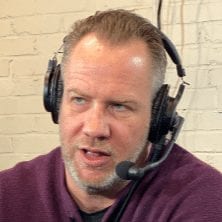
Ward Richmond is an Executive Vice President and shareholder at Colliers International (NASDAQ: CIGI). His team within Colliers specializes in working with C-level executives and operational specialists to develop and execute corporate real estate strategies on a local and global basis in an effort to maximize operational efficiencies and value. Ward’s primary focus is representing dominant logistics companies in the acquisition and disposition of “supply chain real estate”: distribution centers, truck terminals, last mile hubs, manufacturing facilities and industrial land. With over 12 years of experience, Ward has developed an unparalleled understanding of Supply Chain Real Estate strategy via negotiating 500+ transactions, globally, in 50+ cities while generating millions in value for his customers. Ward enjoys reading, writing and speaking about eCommerce and the logistics industry. He’s been featured on podcasts like the GaryVee Audio Experience and interviewed by multiple publications including The Wall Street Journal. Ward has also been a featured speaker at multiple real estate and logistics conferences around the globe. Ward currently serves on the steering committee for the Colliers International Logistics & Transportation Solutions Group and is an active member of IWLA, IAMC, and the semi-legendary, Texas Warehouse Association. Be sure to check out Ward’s blog at: www.SupplyChainRealEstate.com and learn more about Colliers International here: https://www2.colliers.com/en
